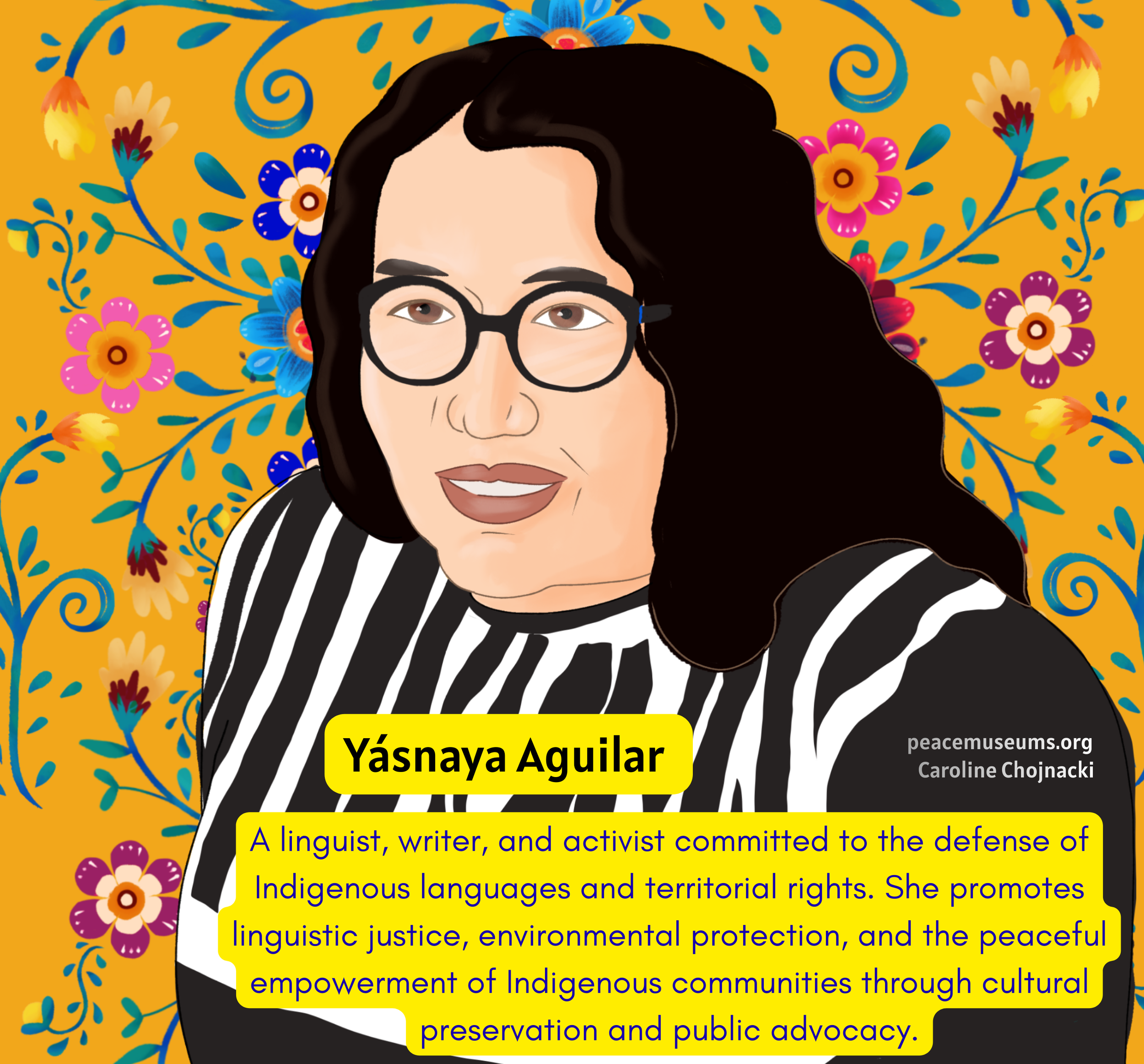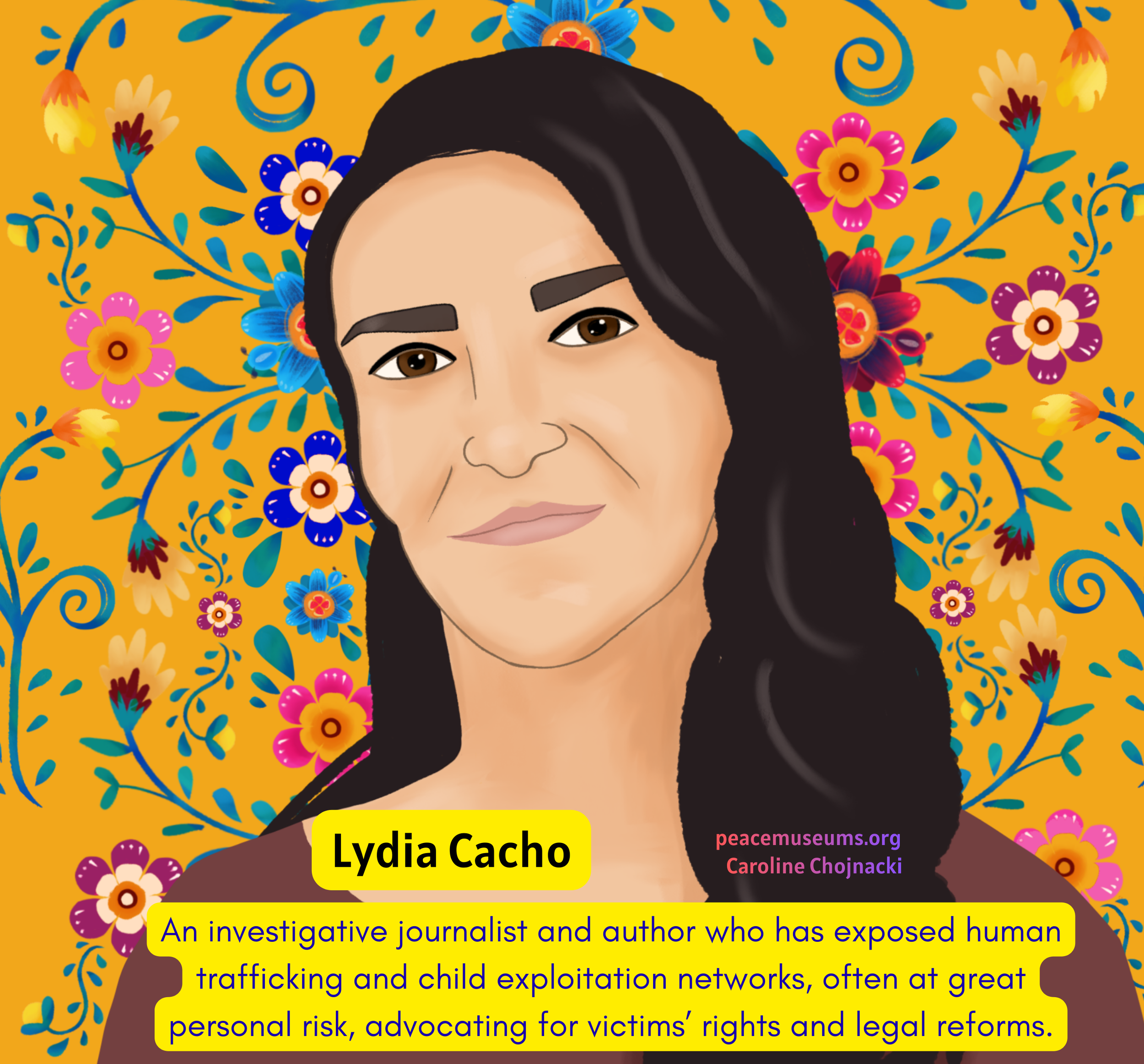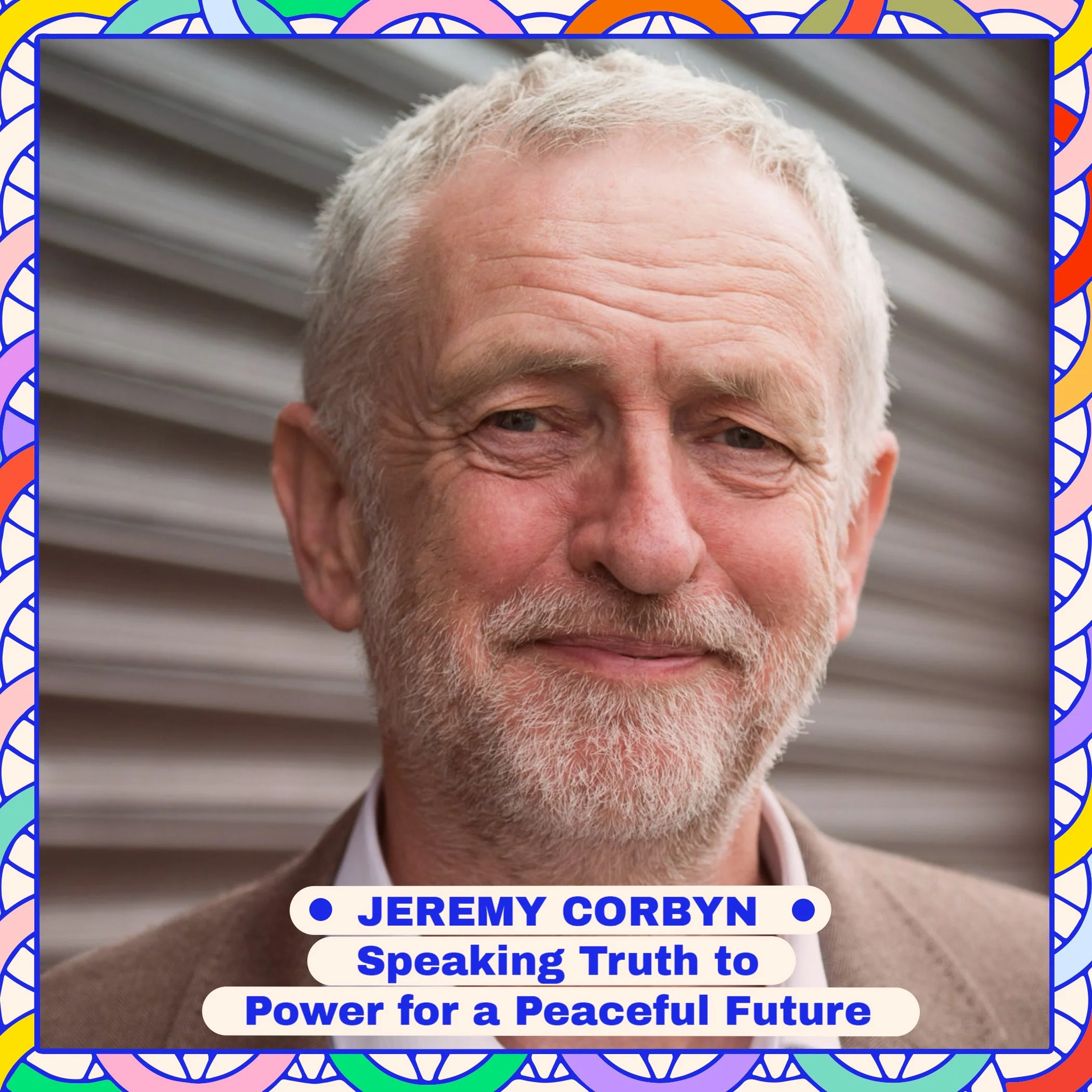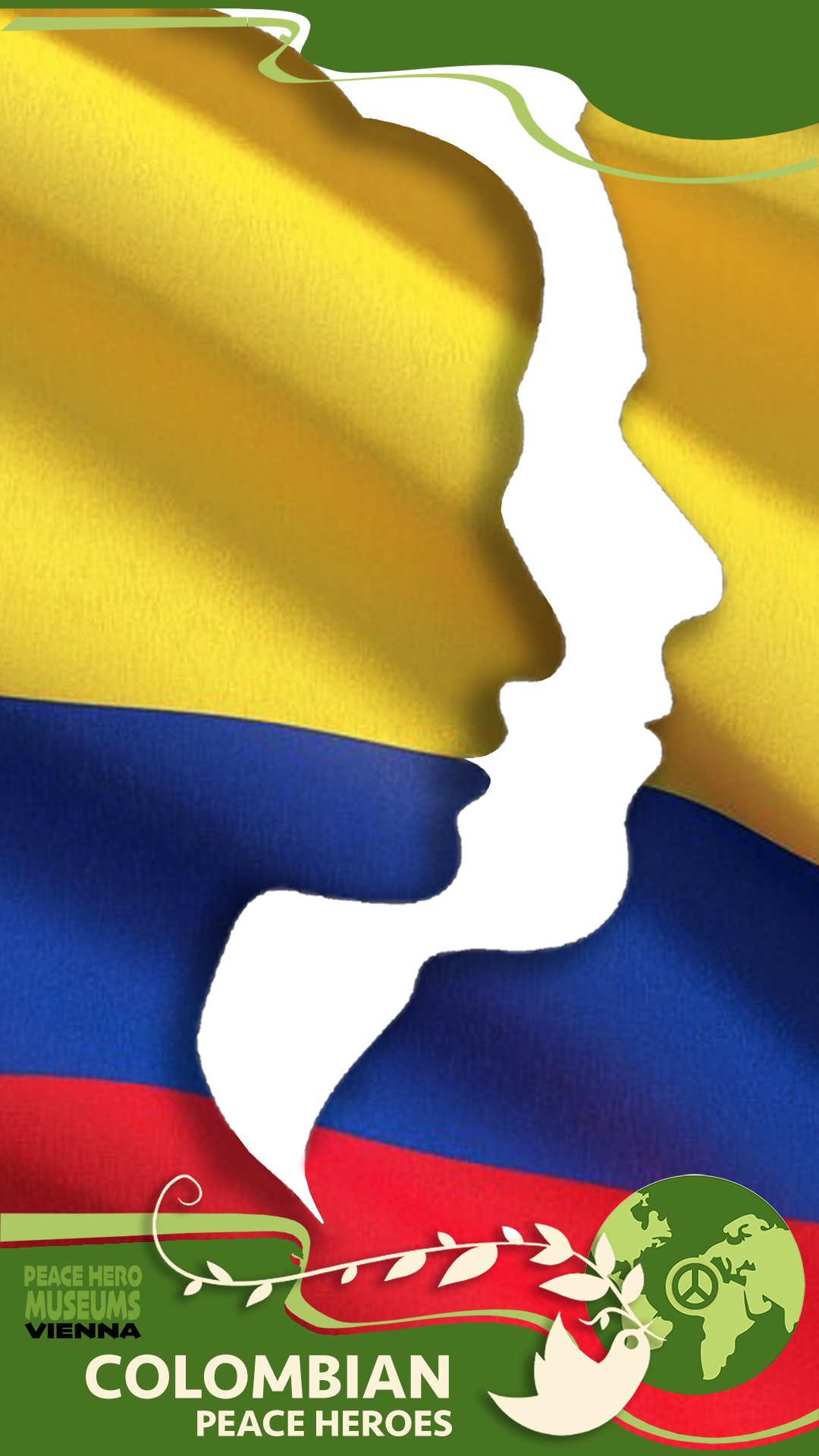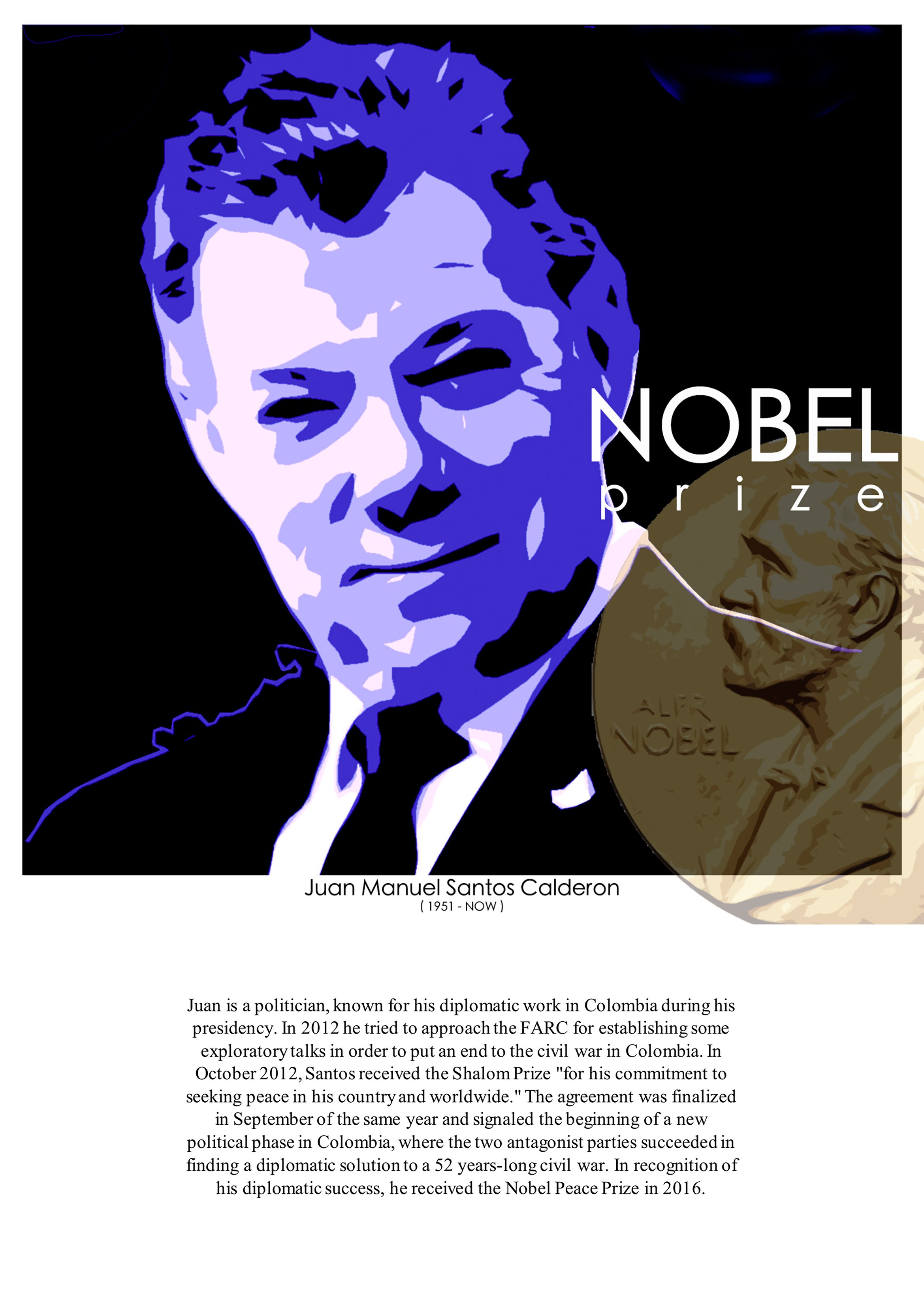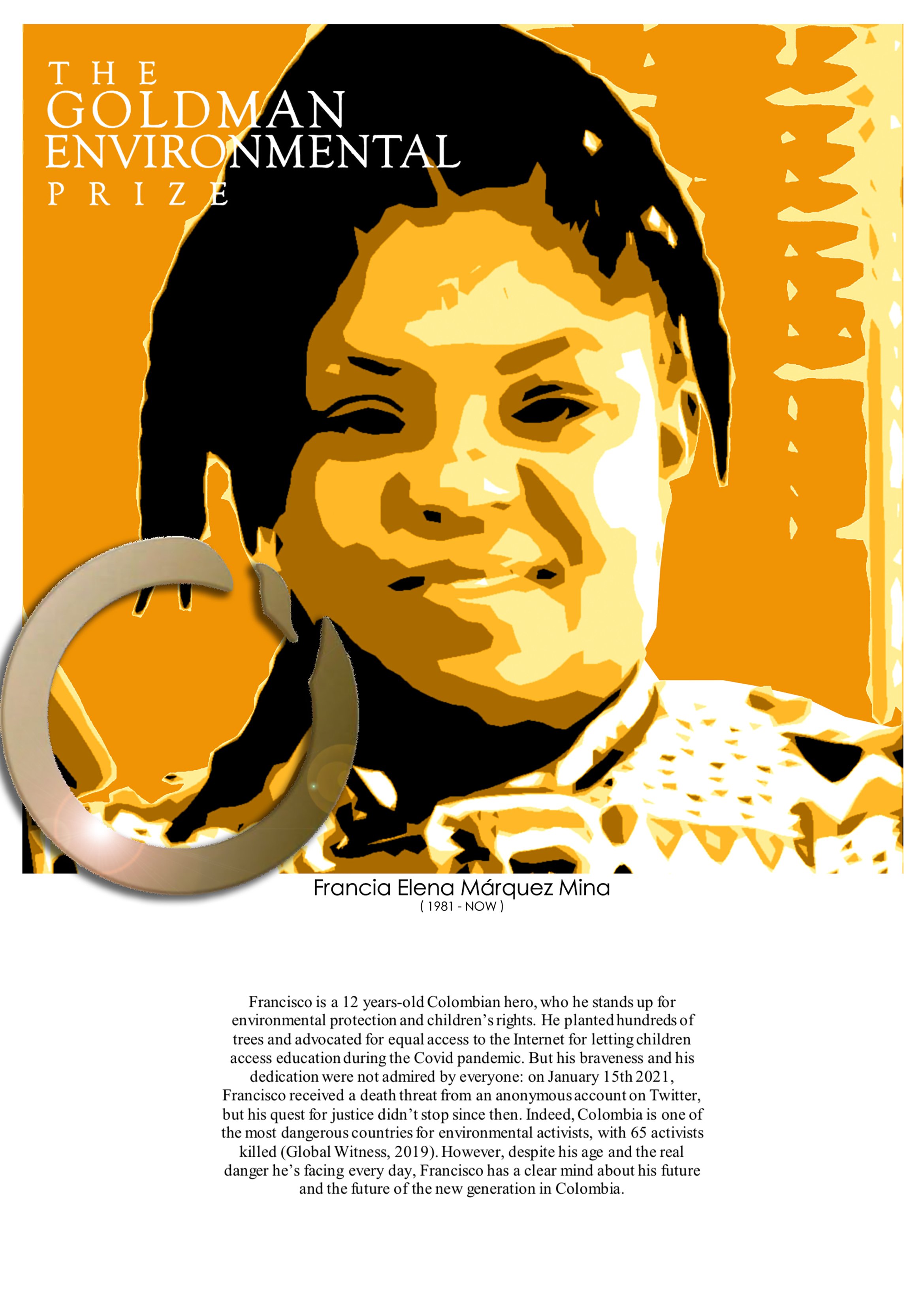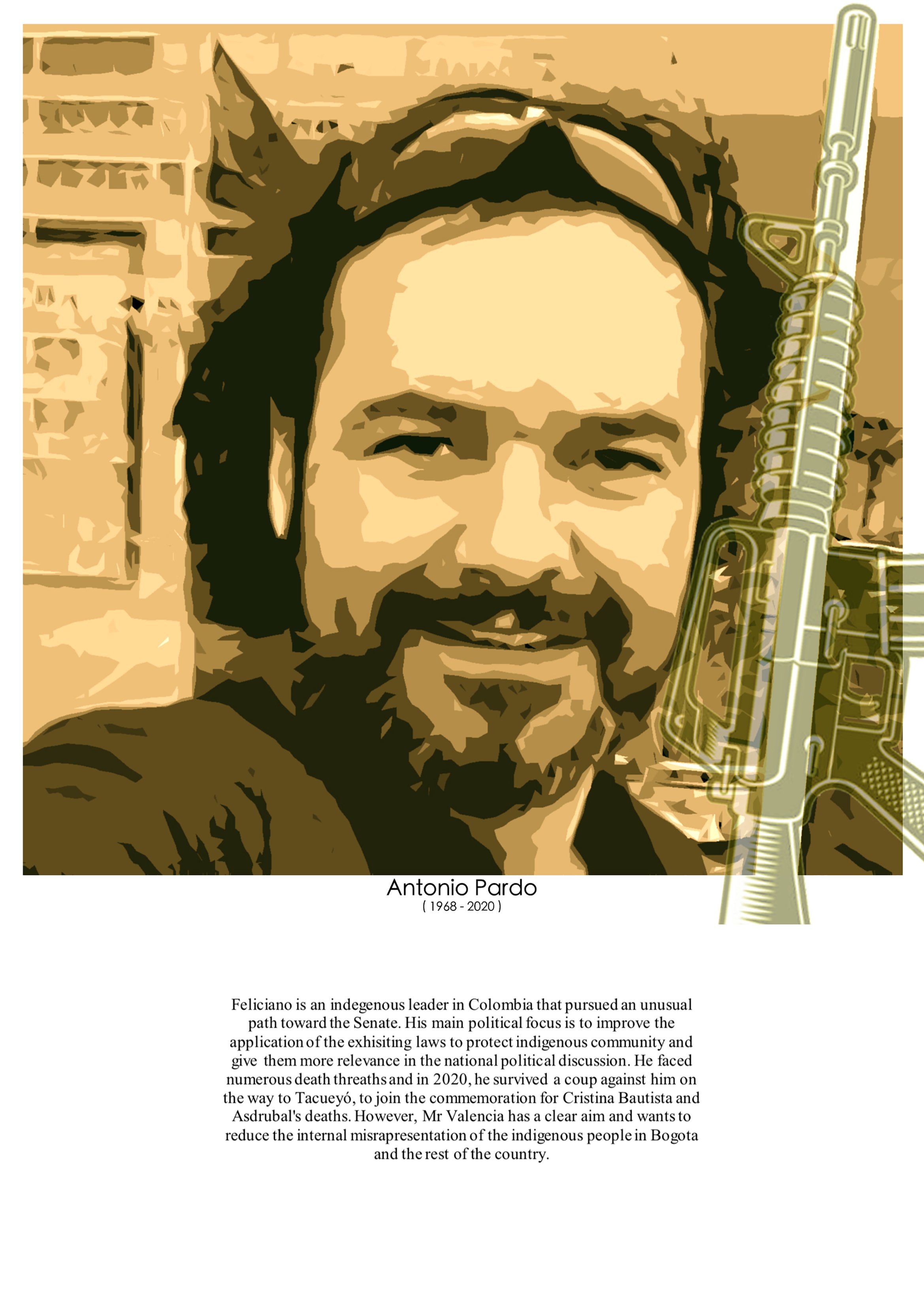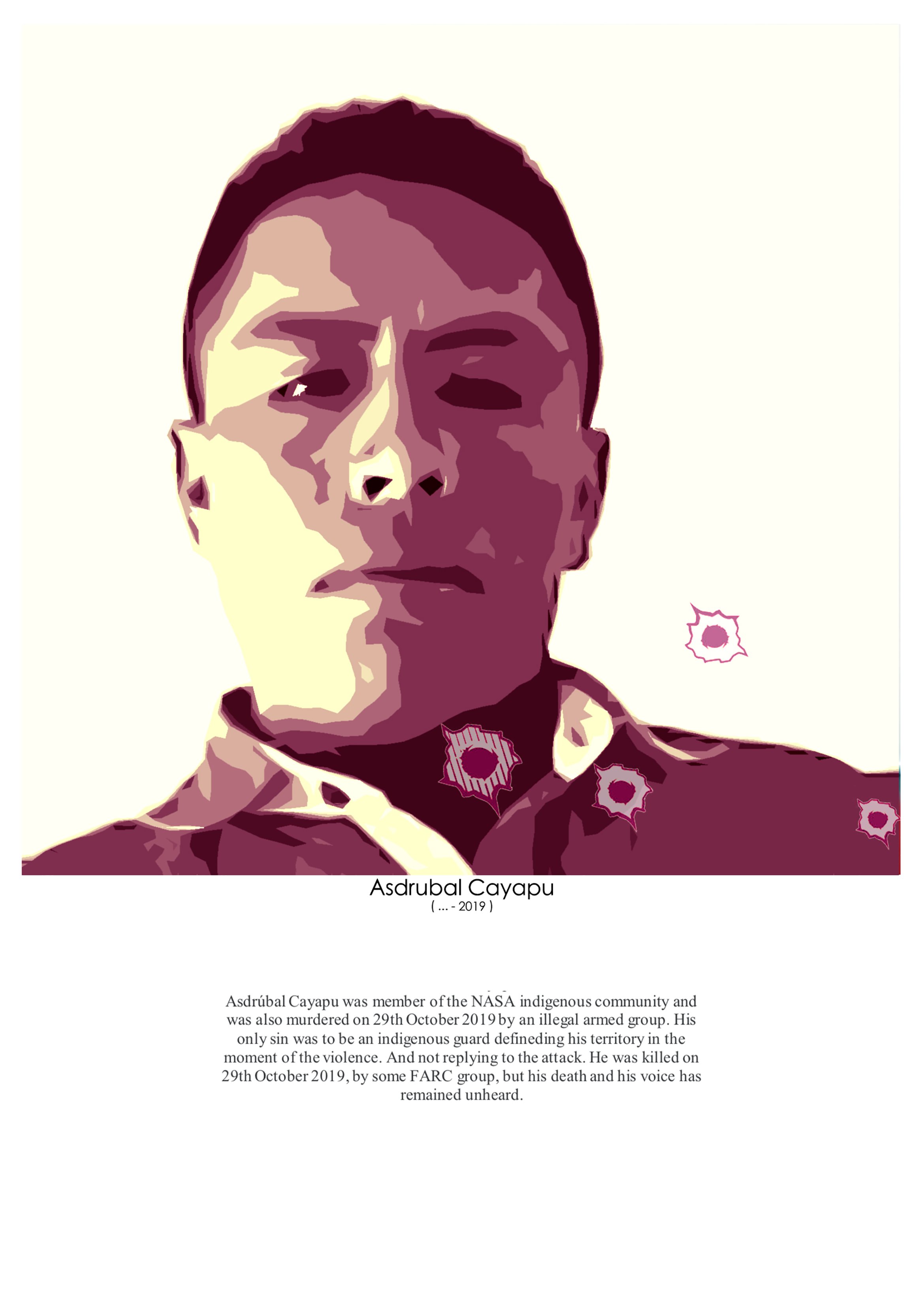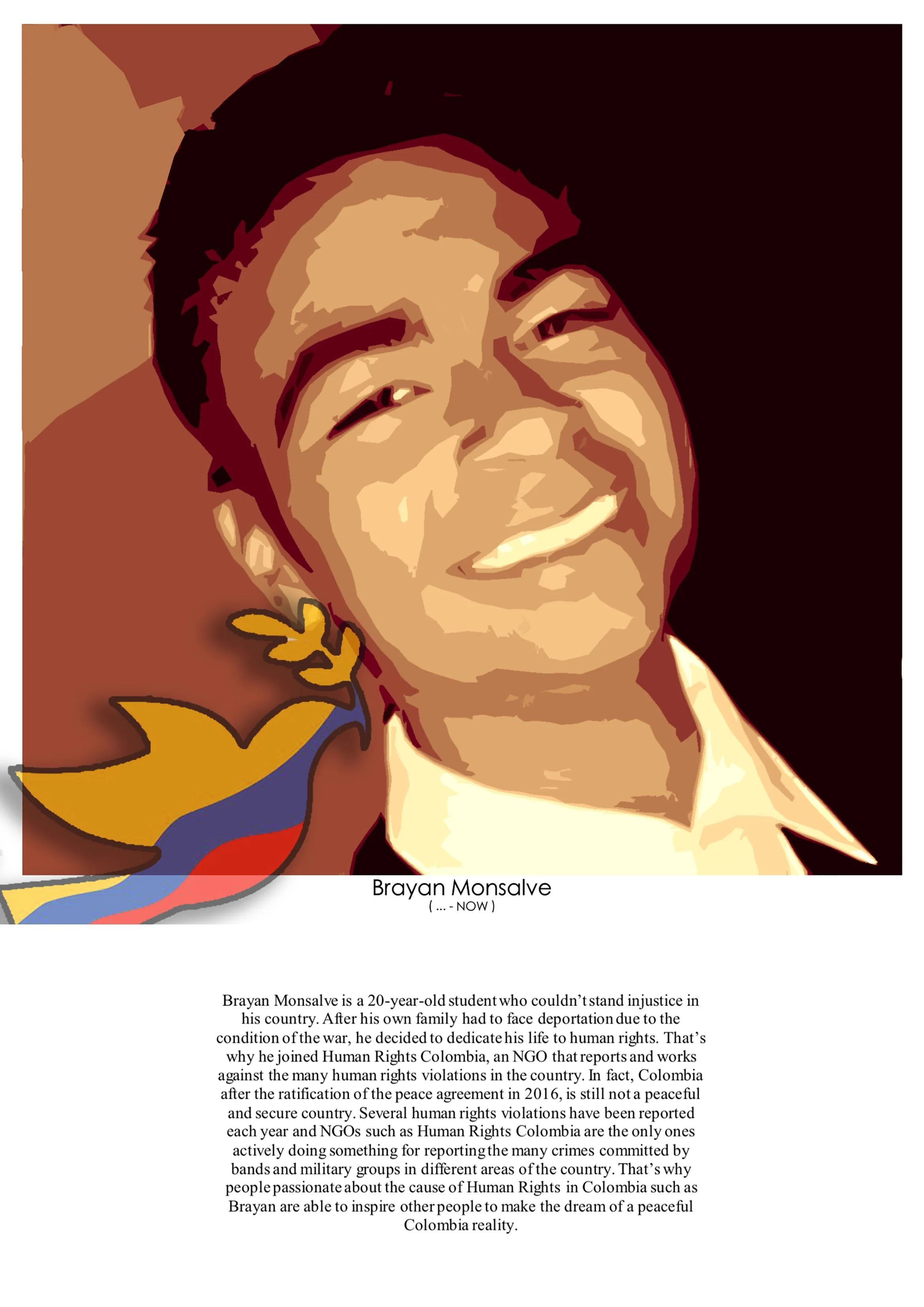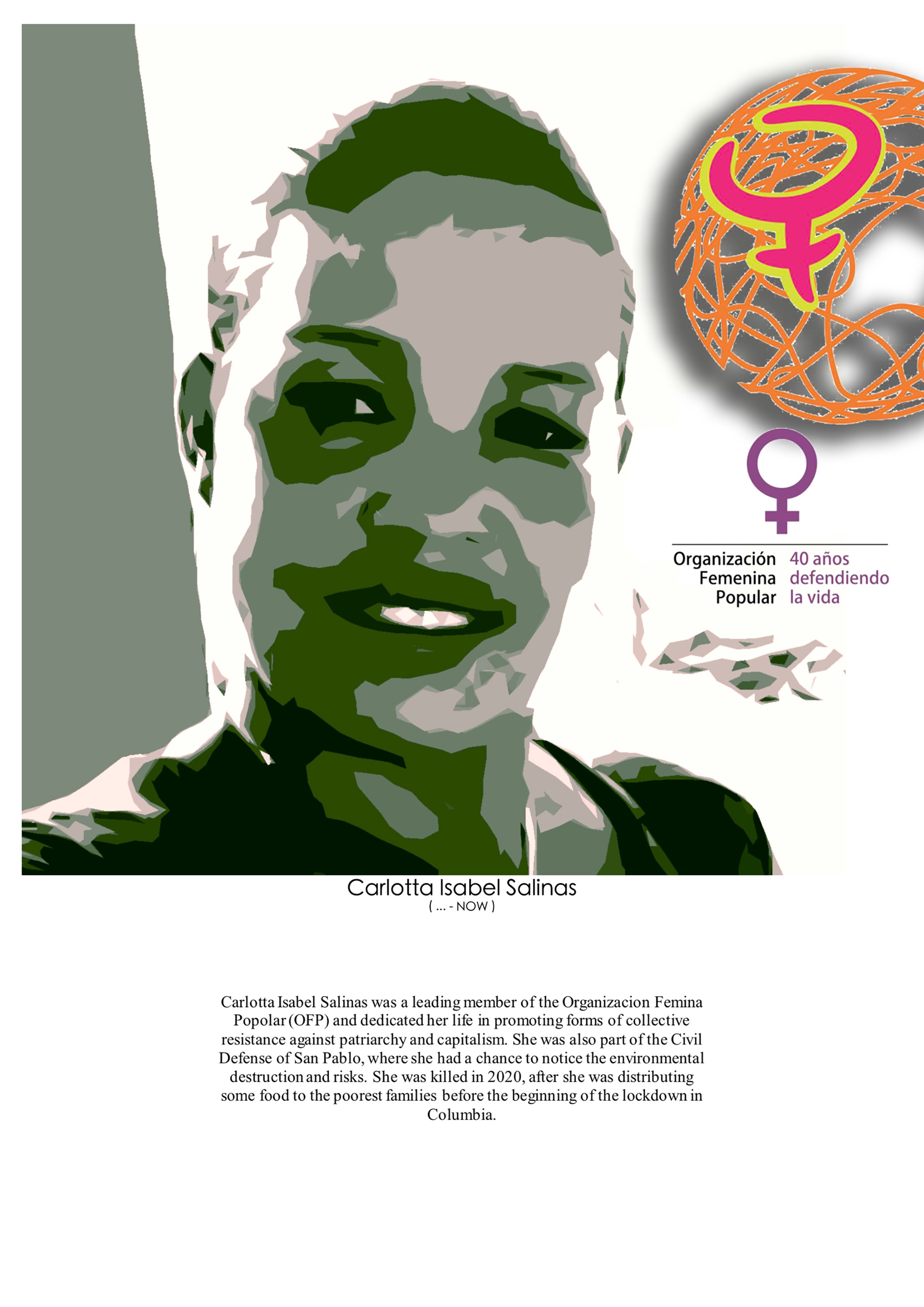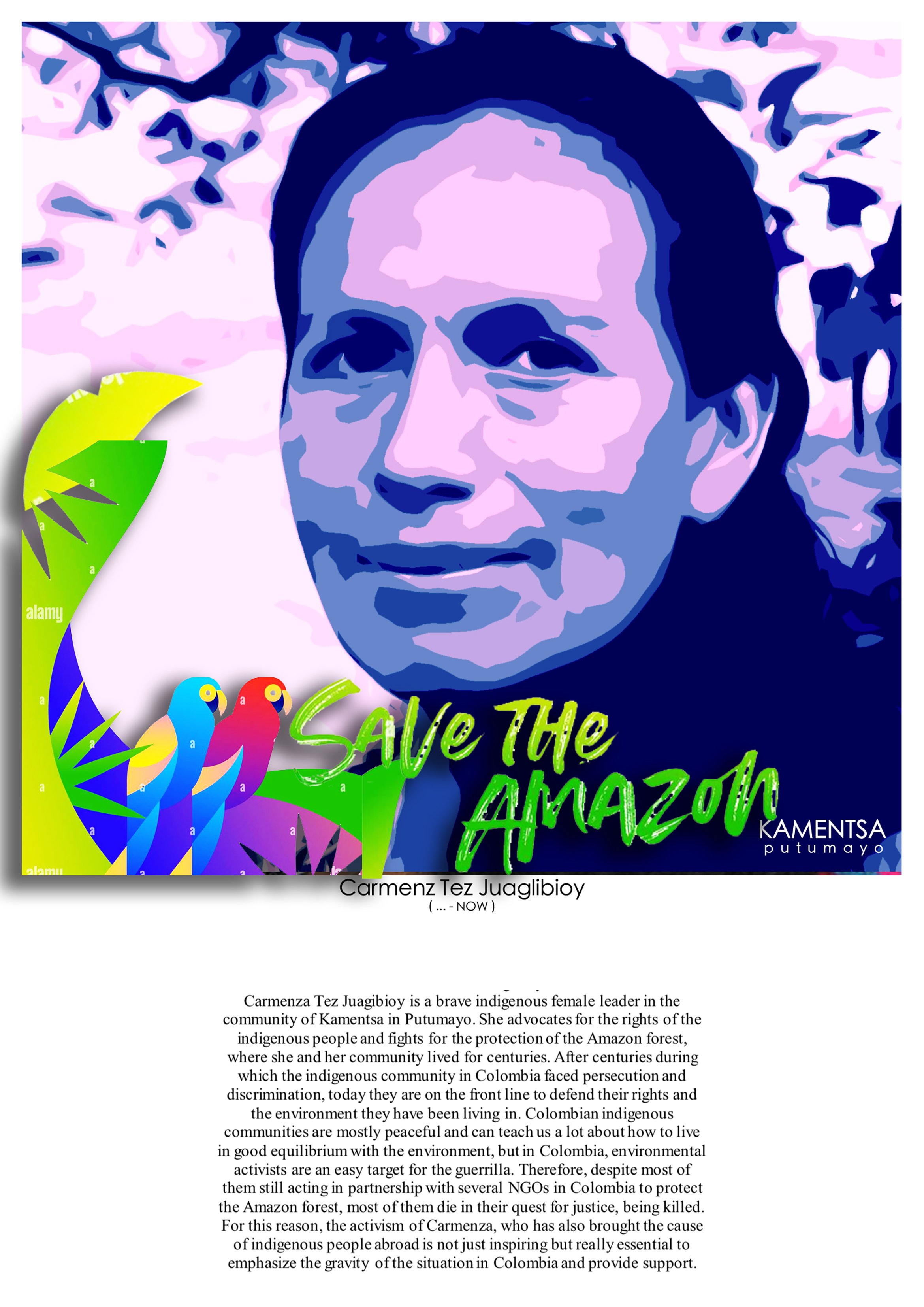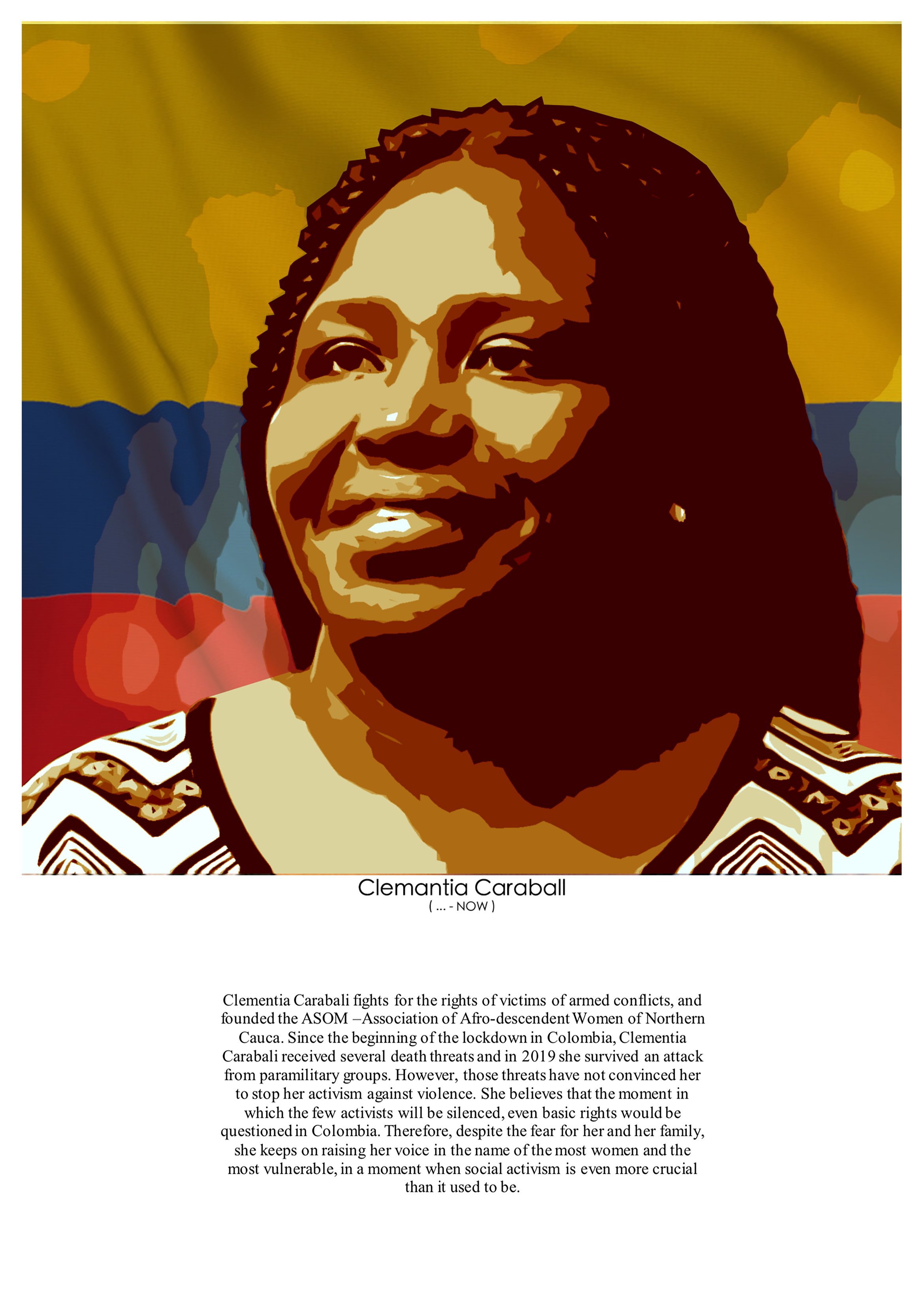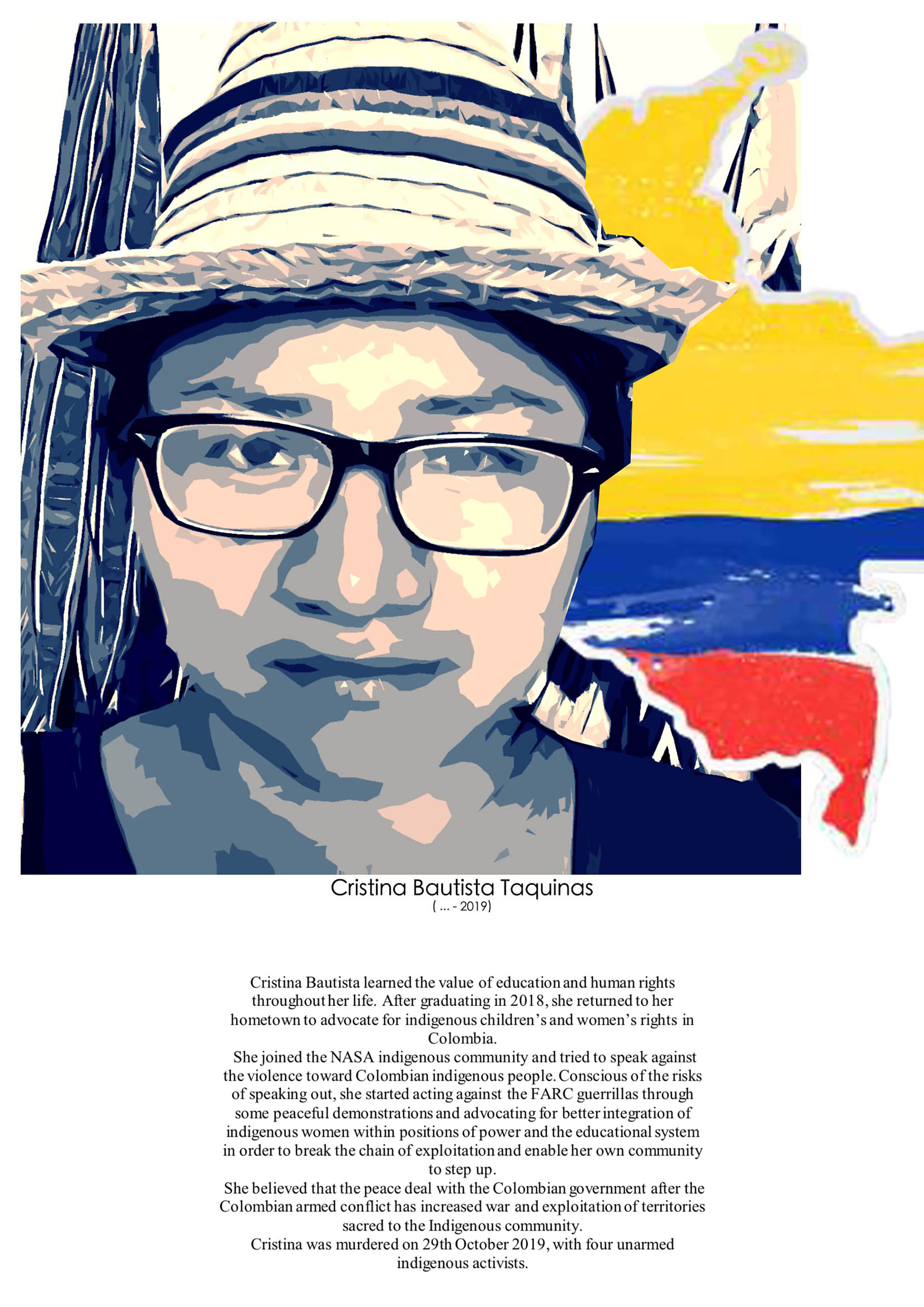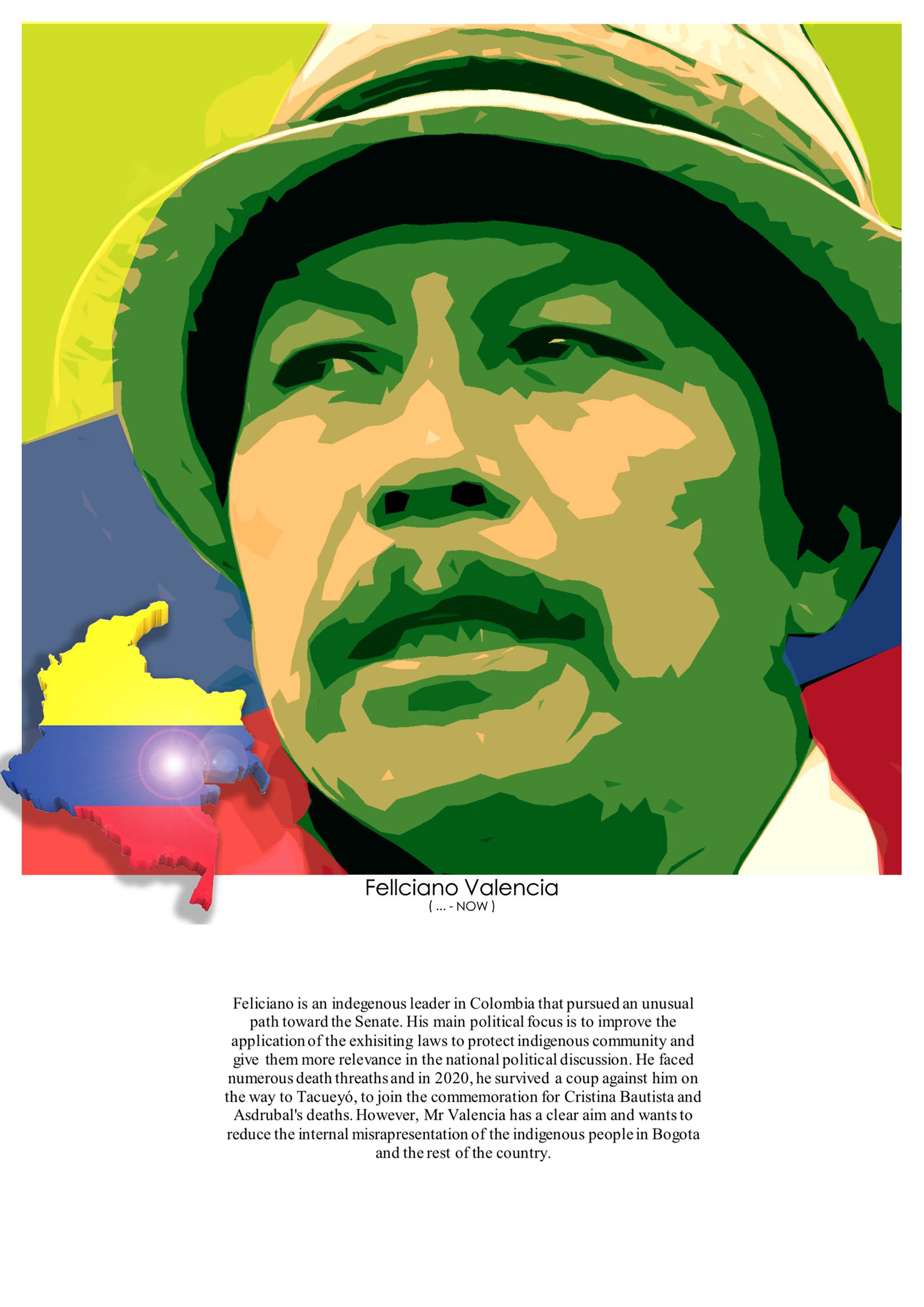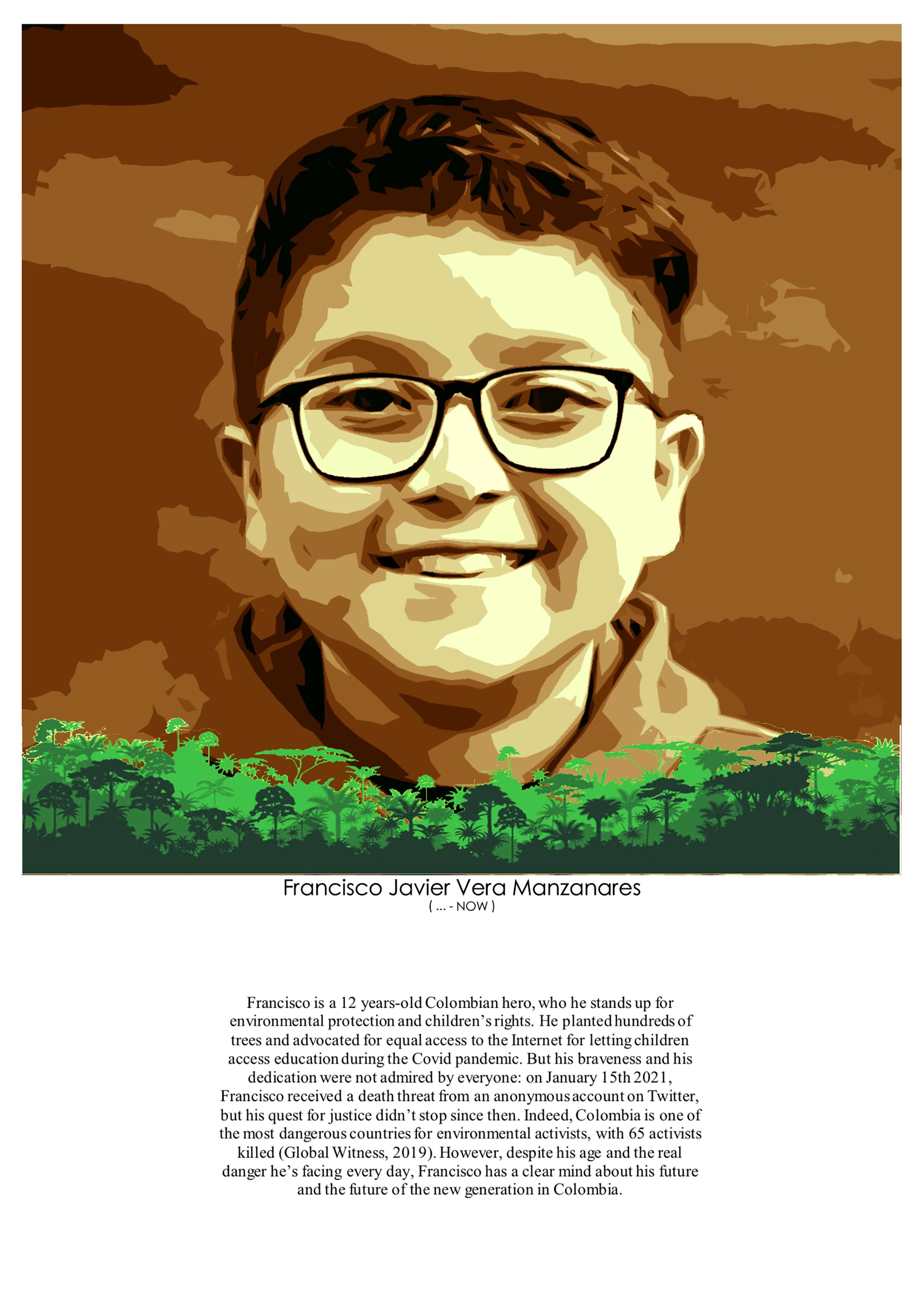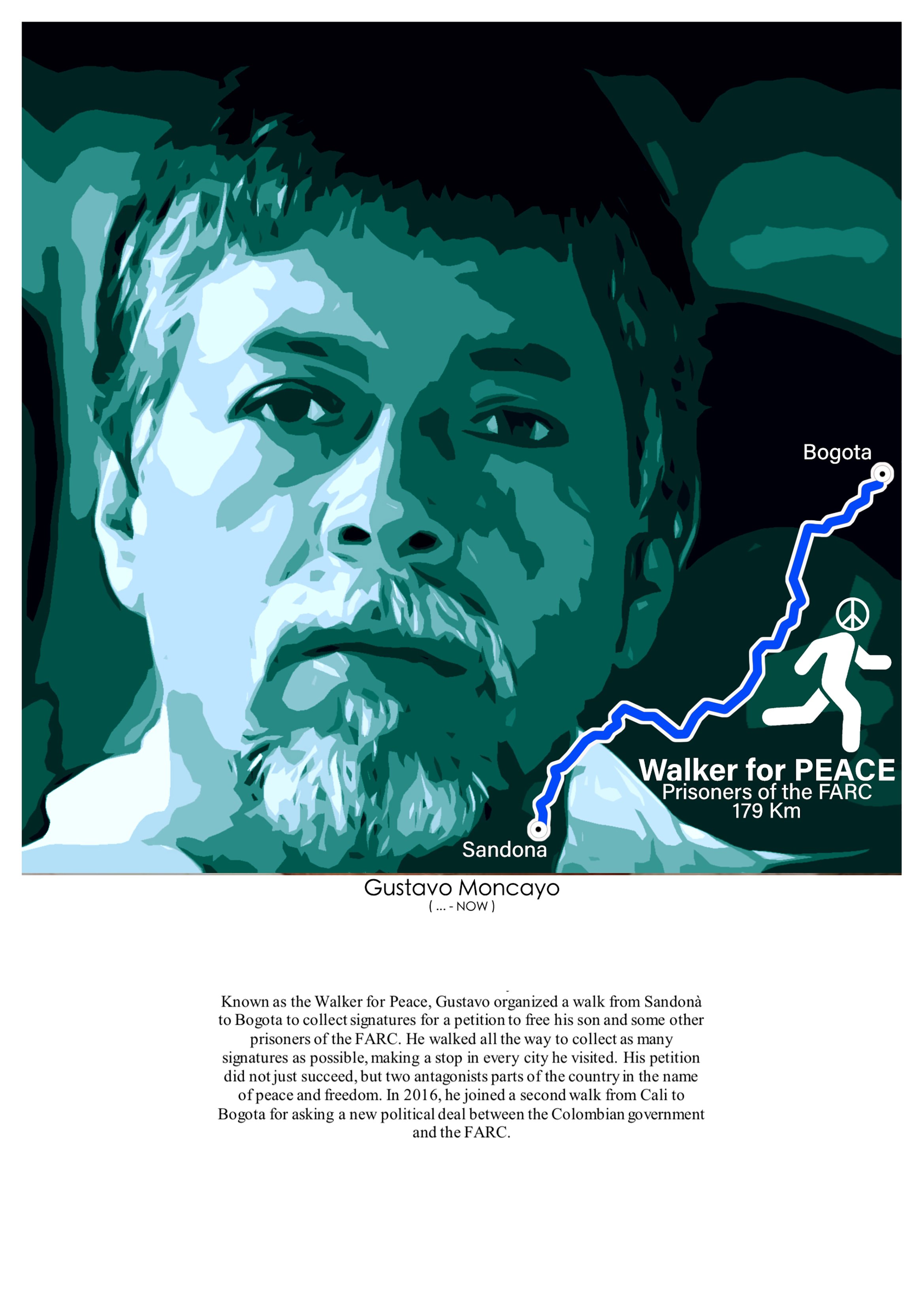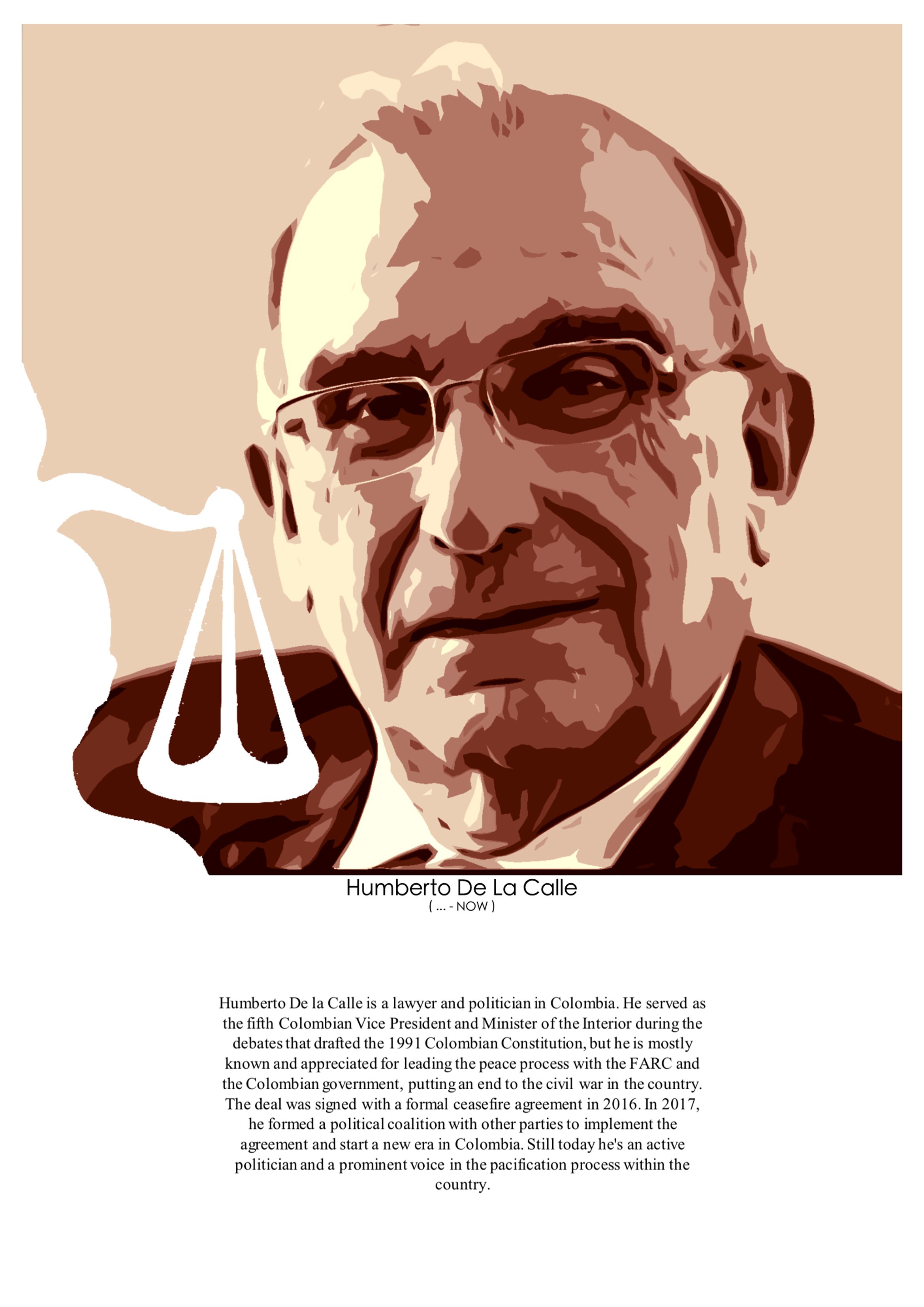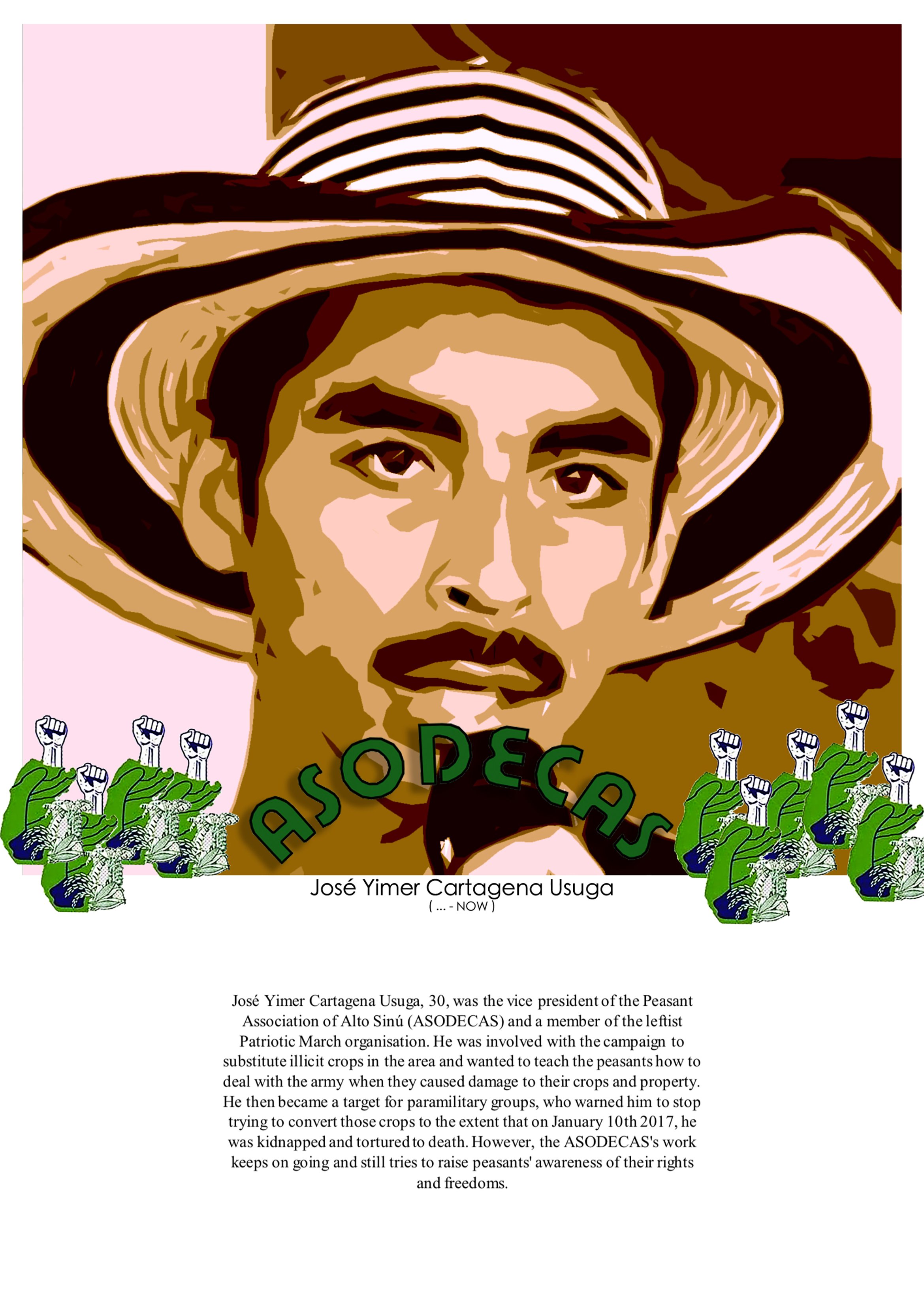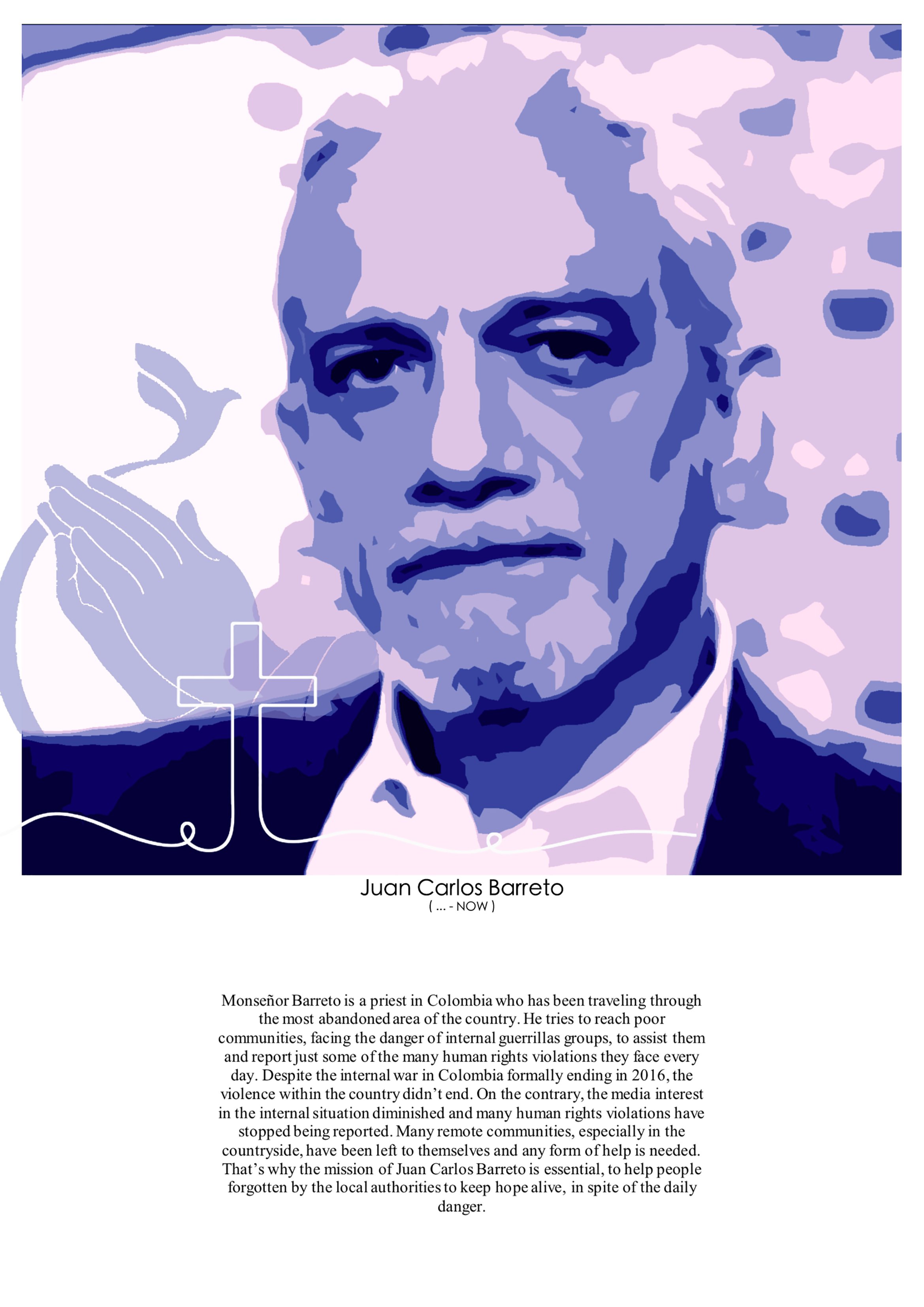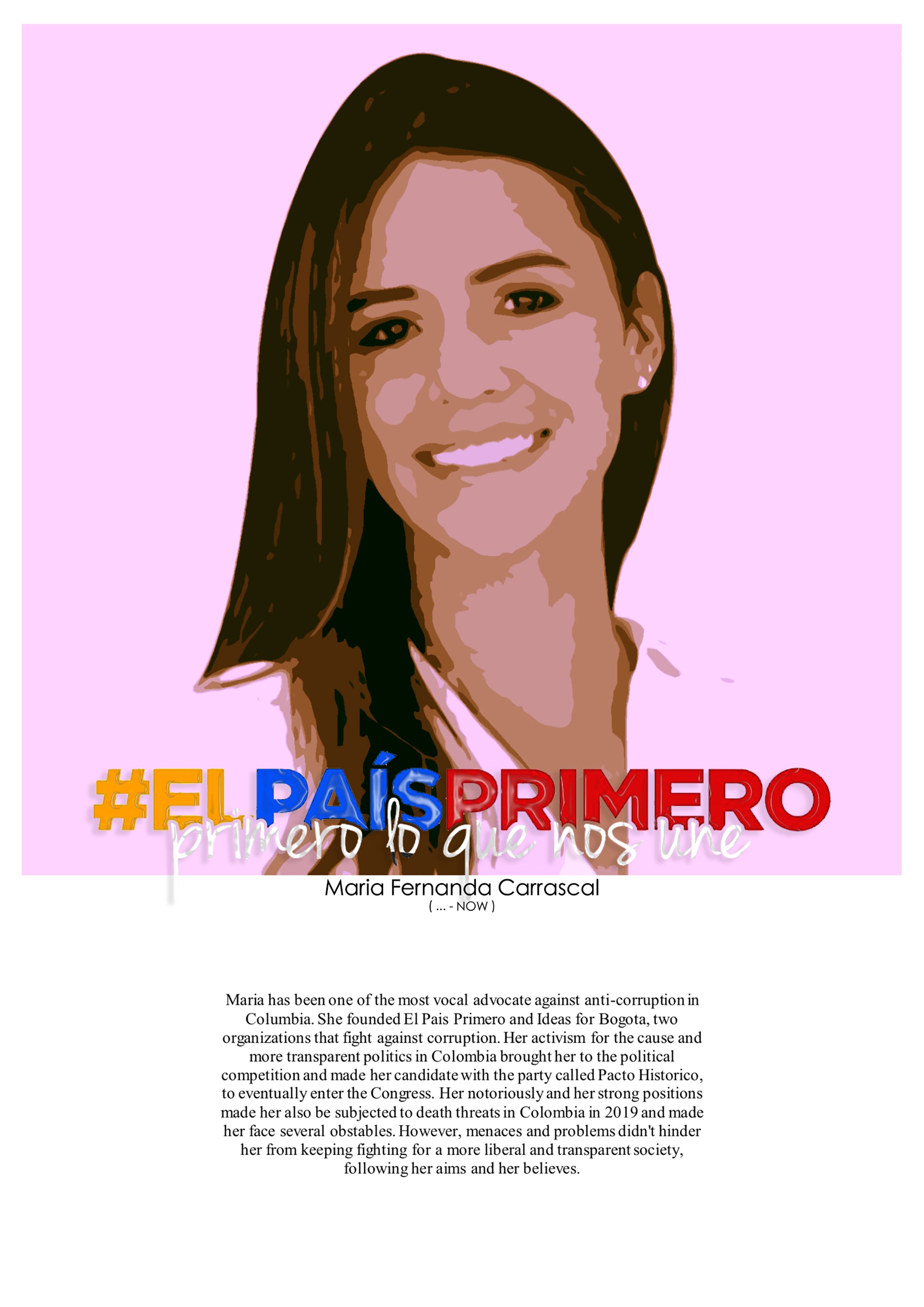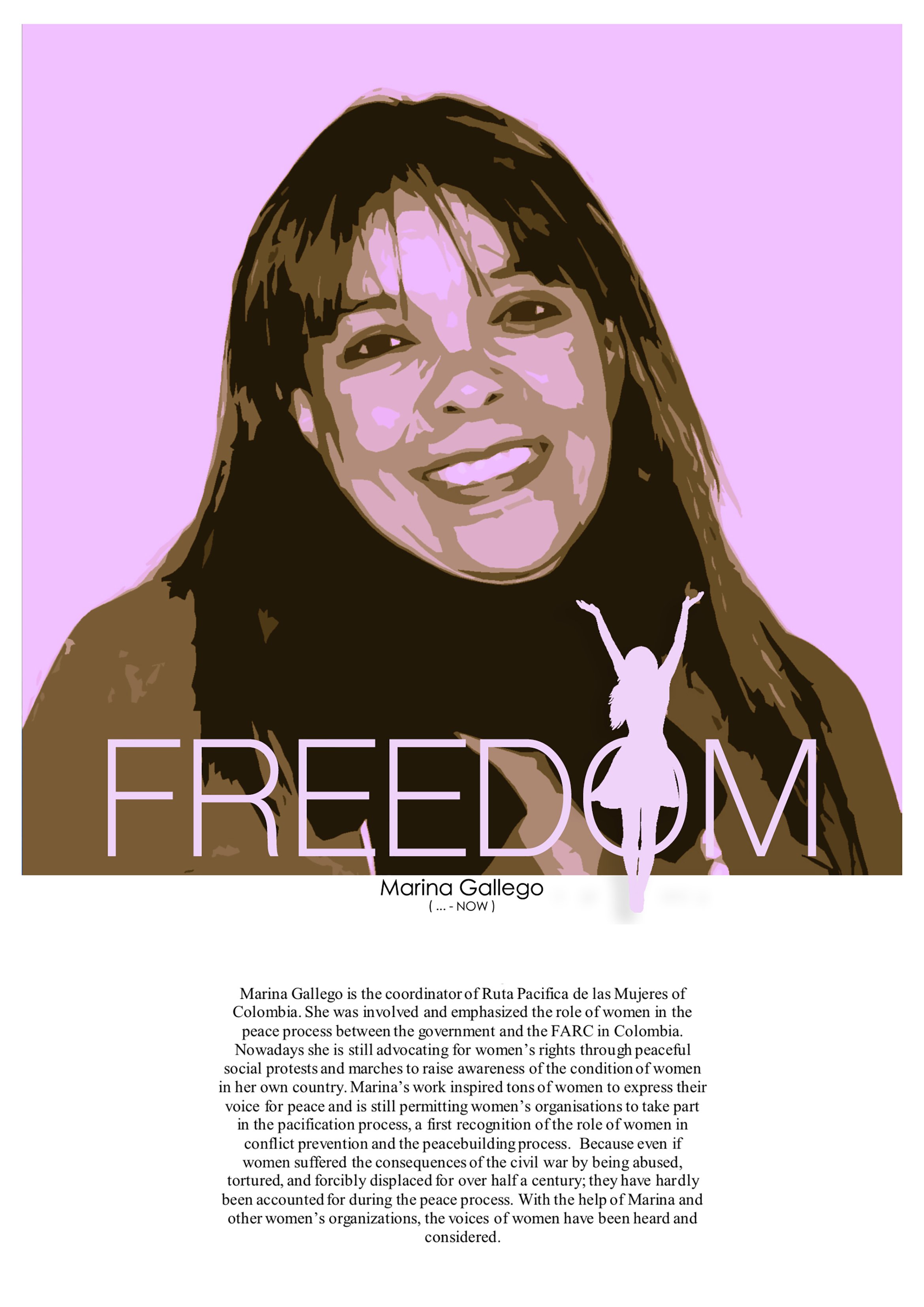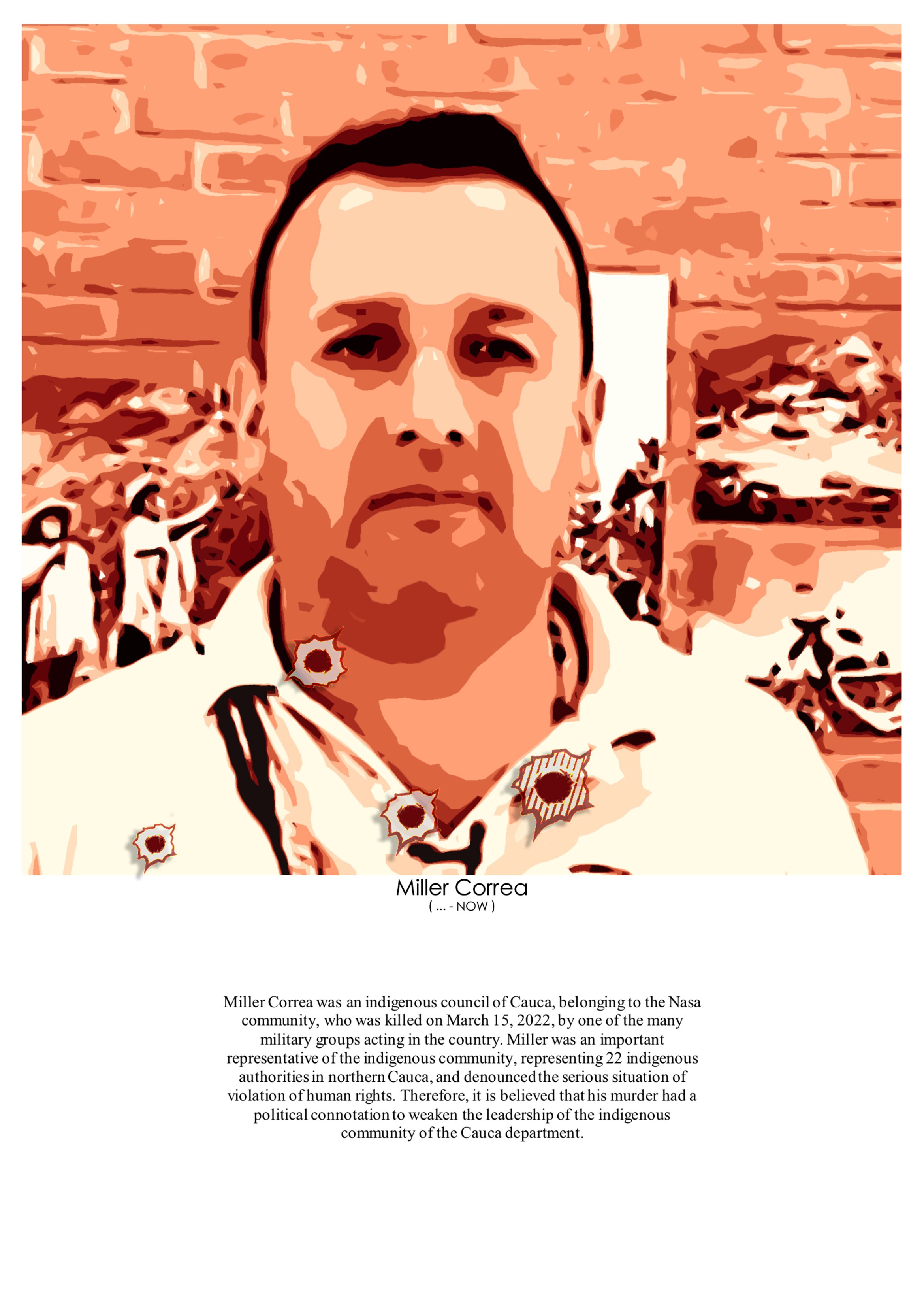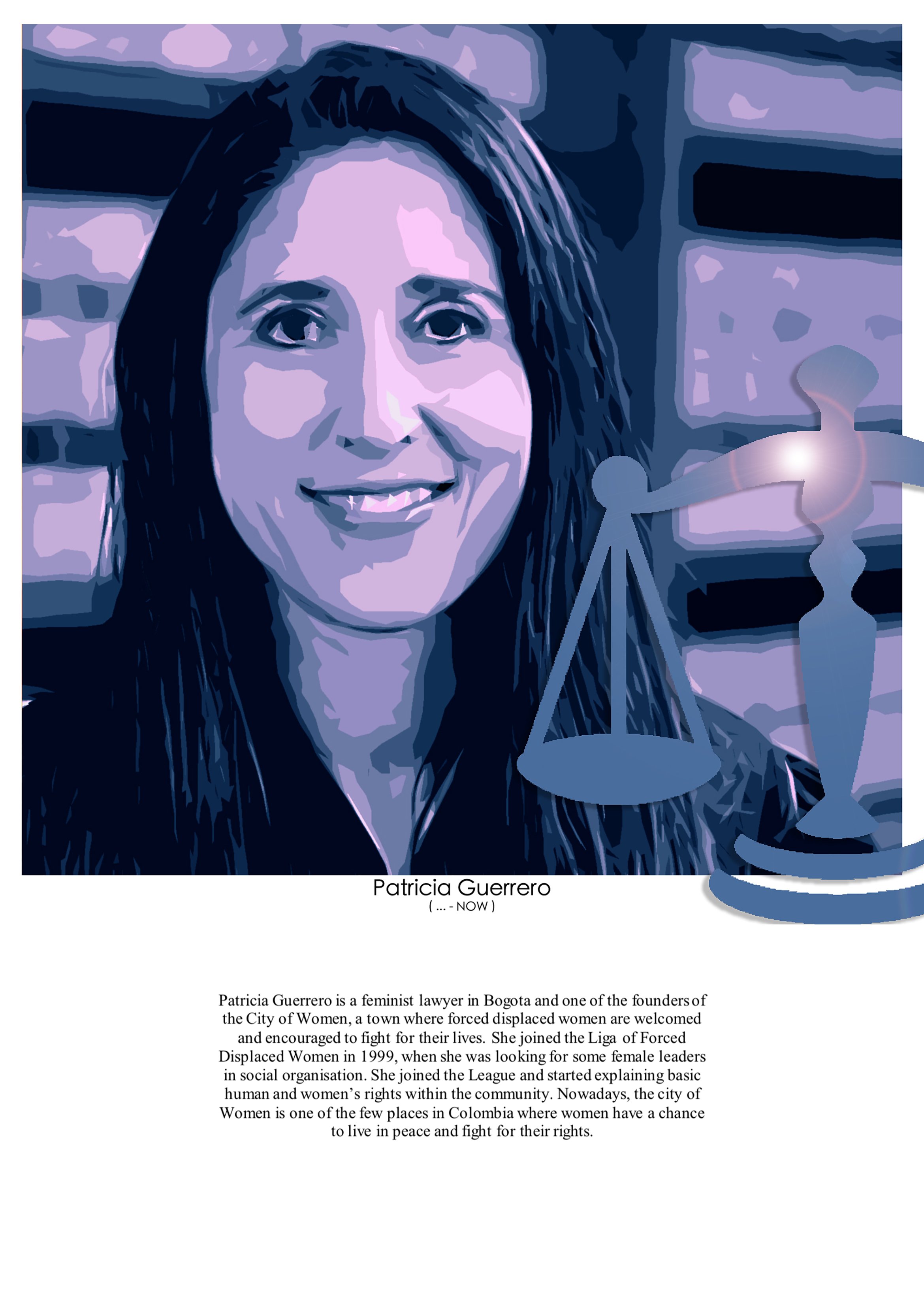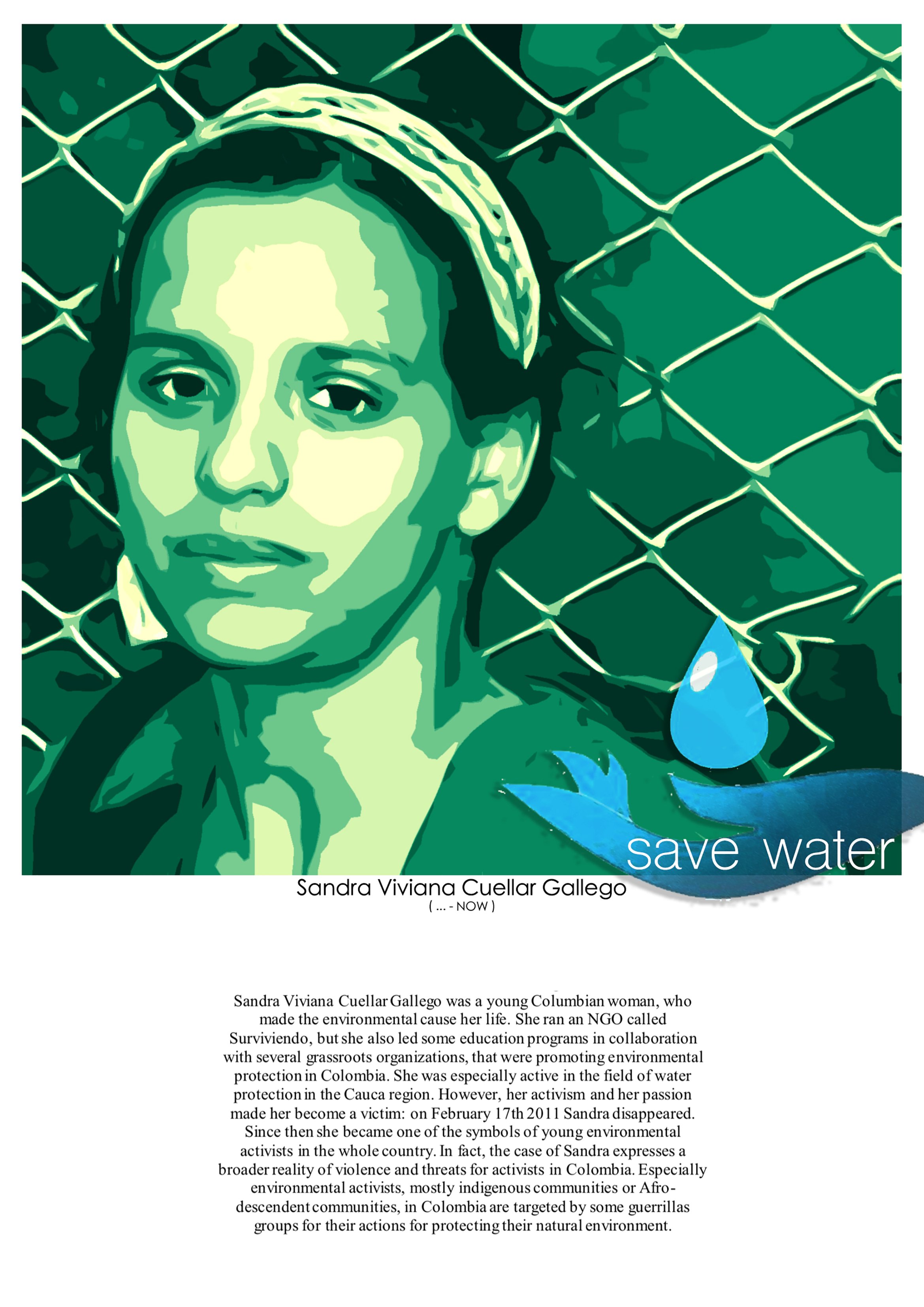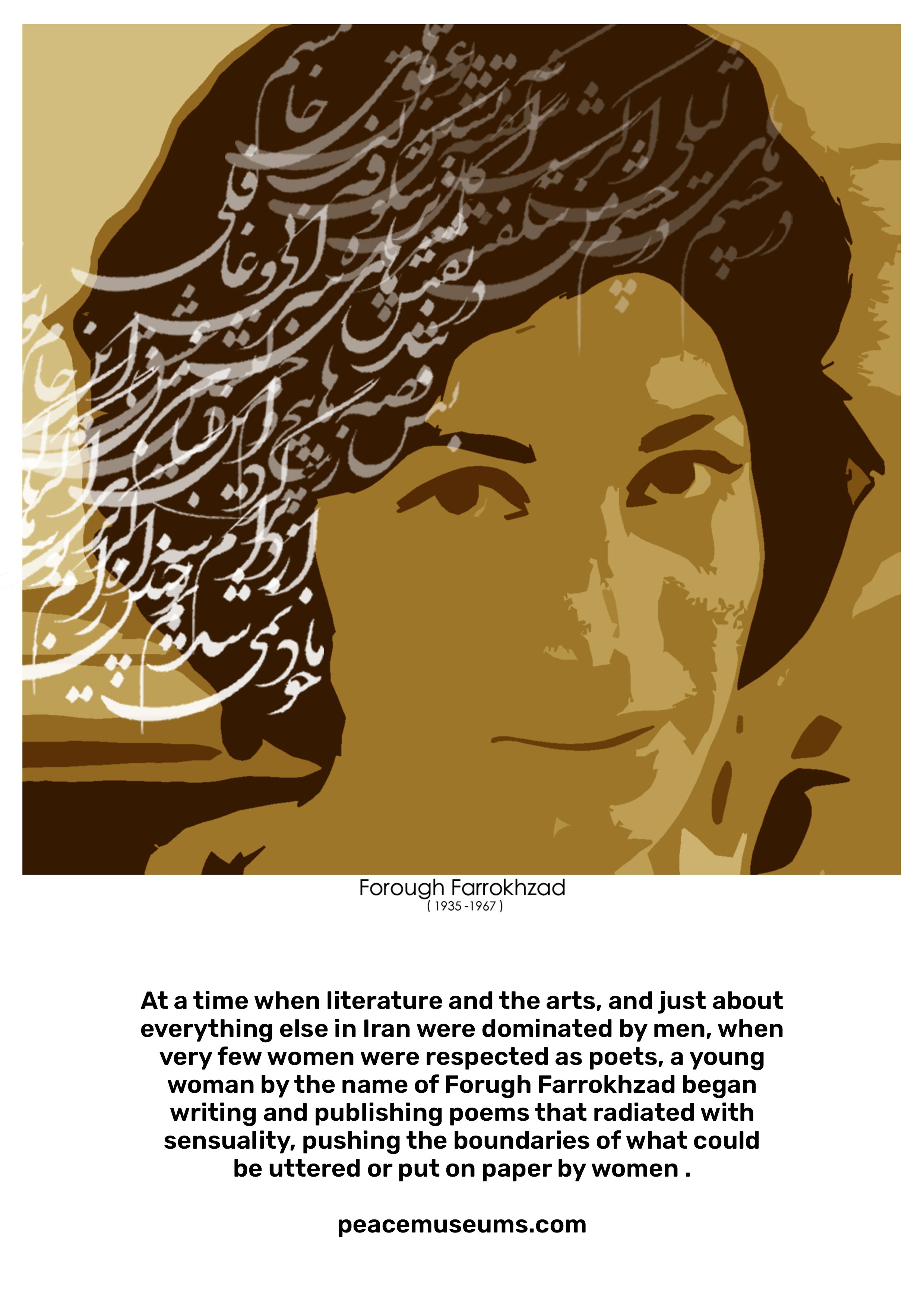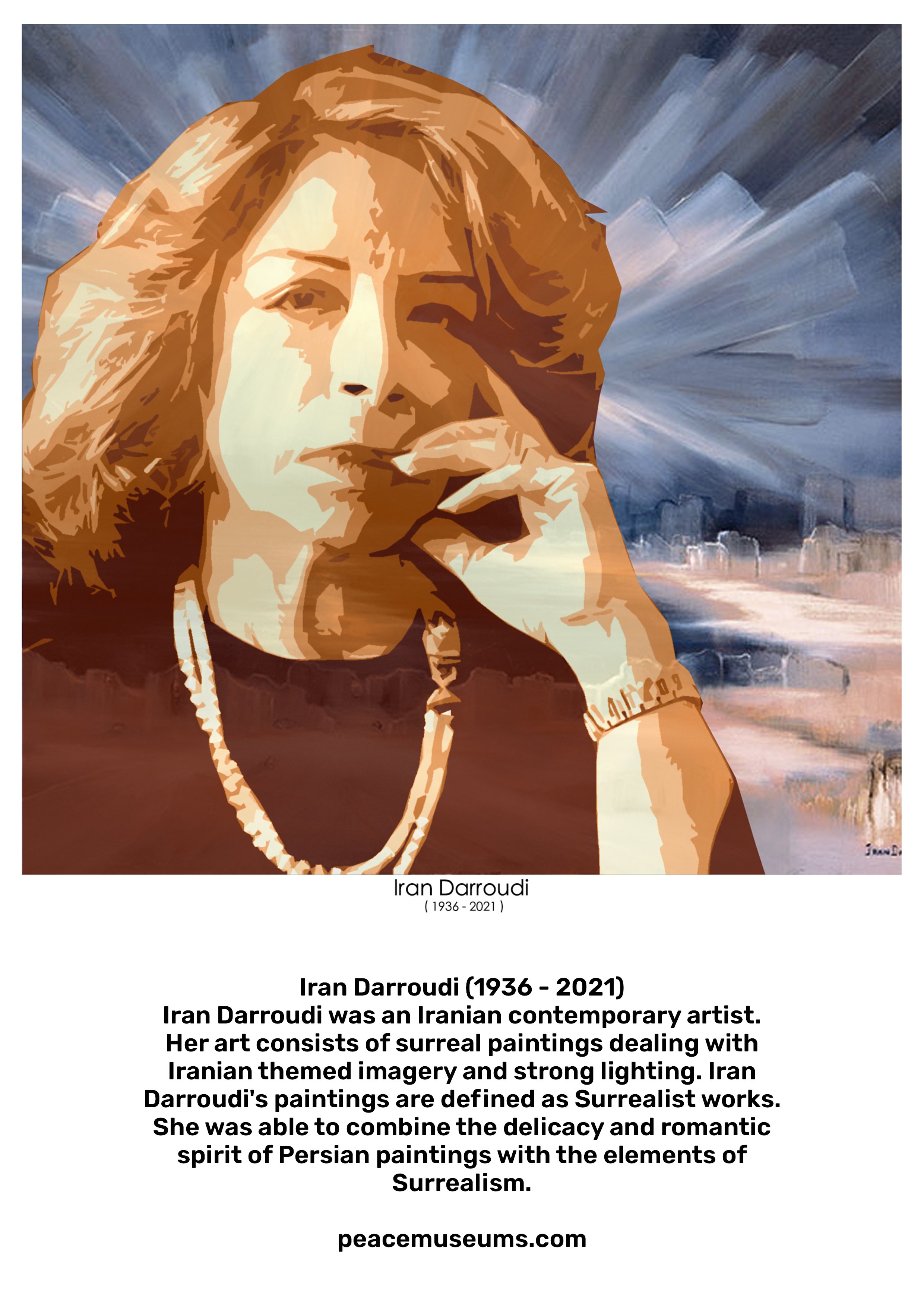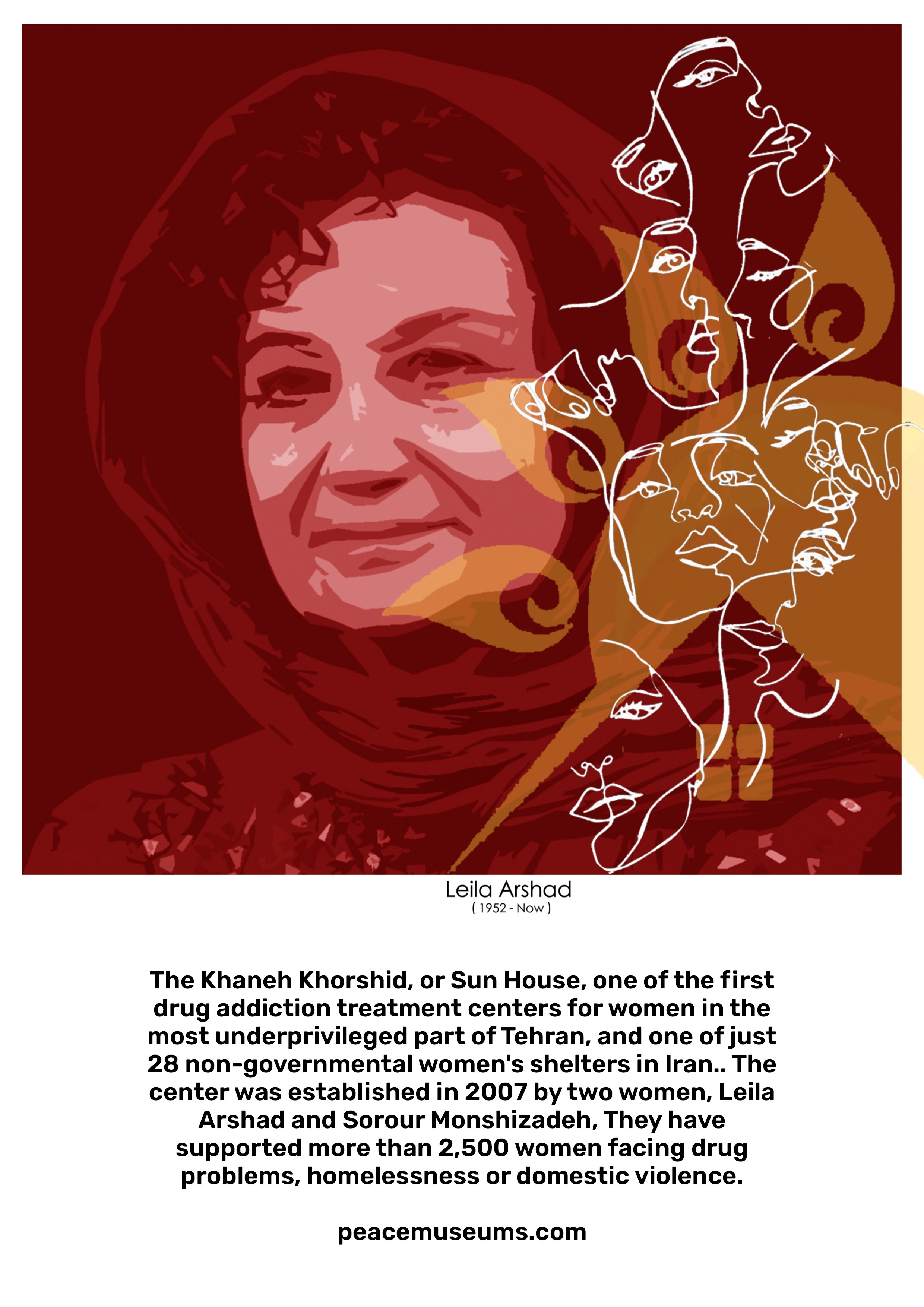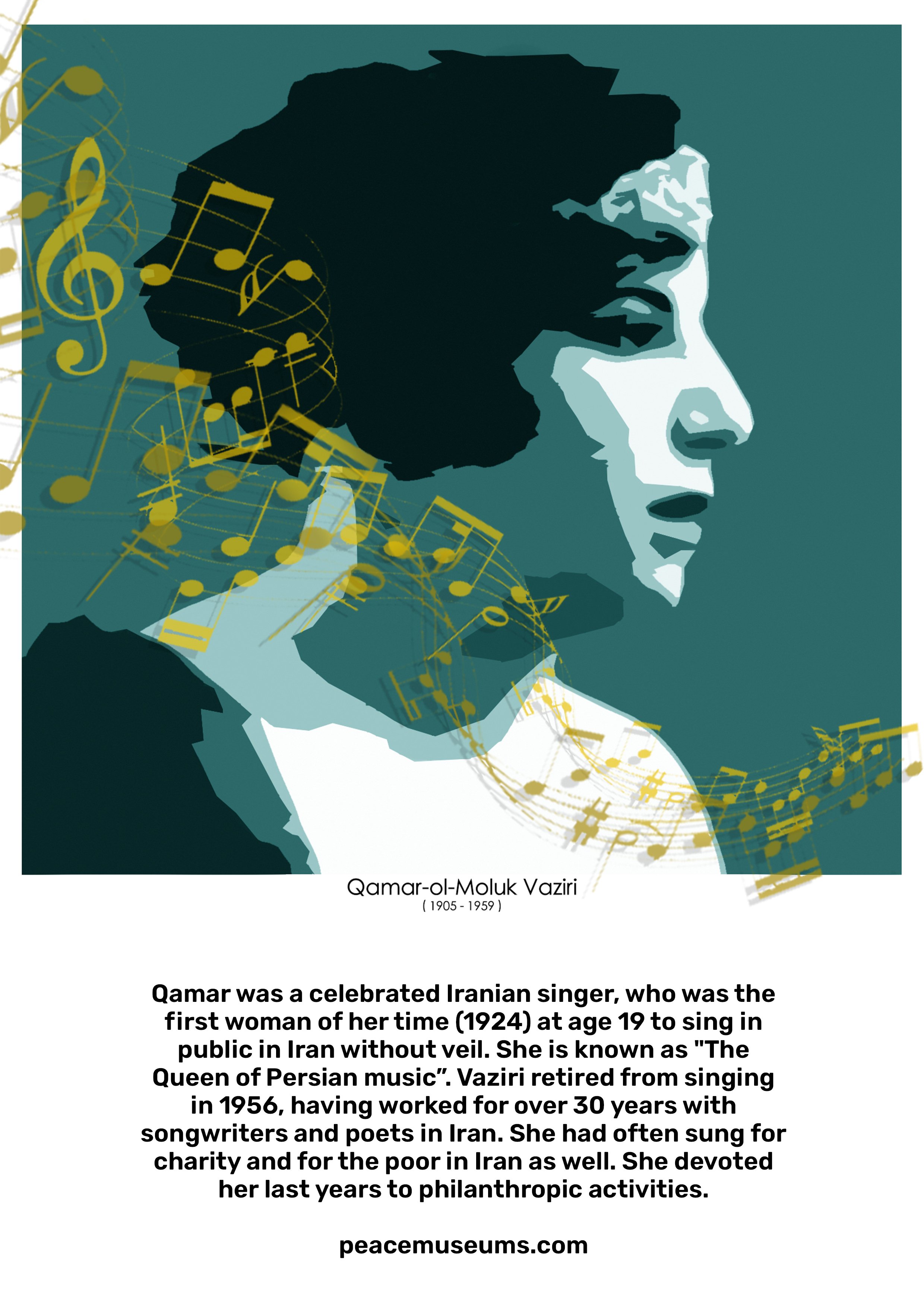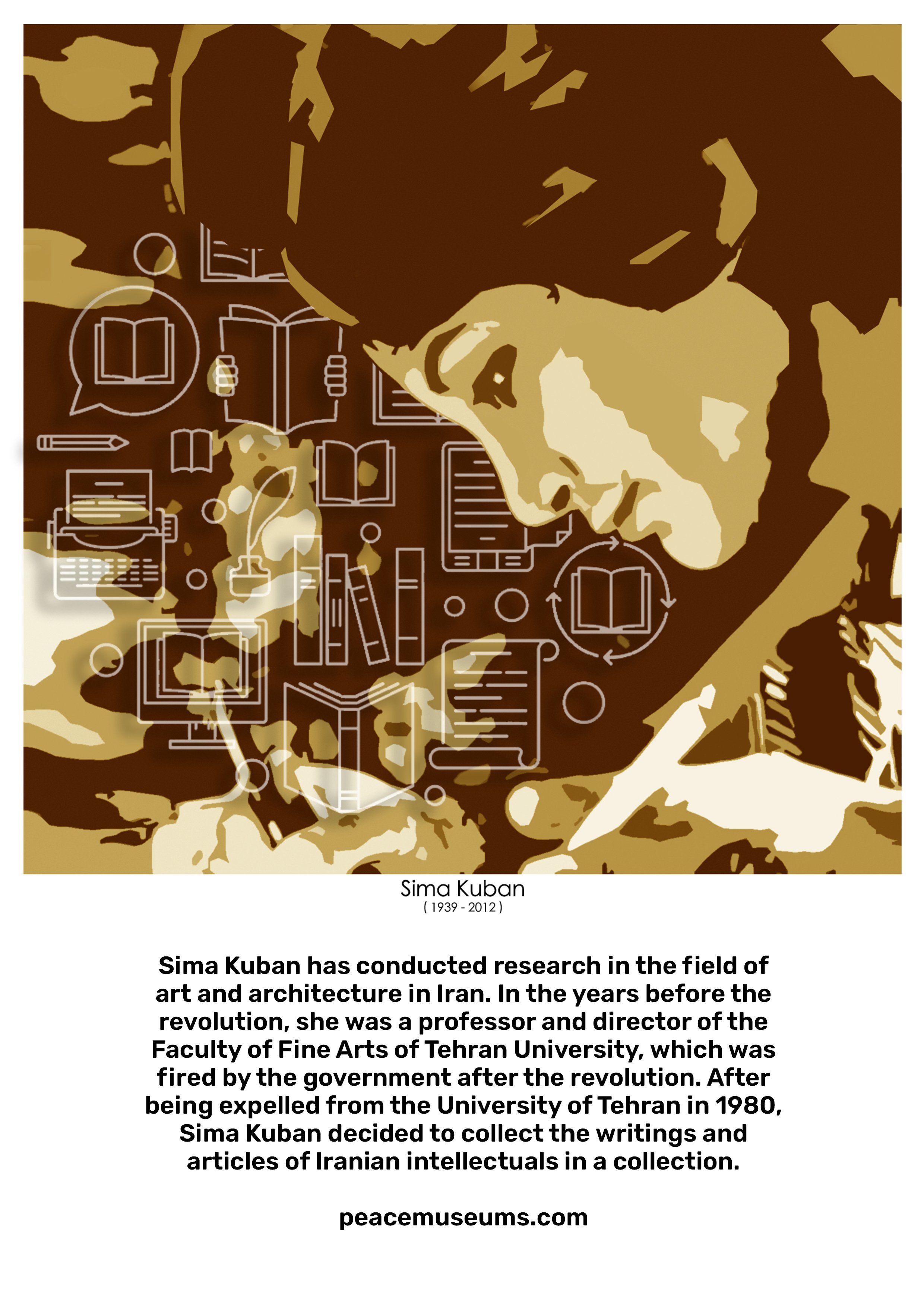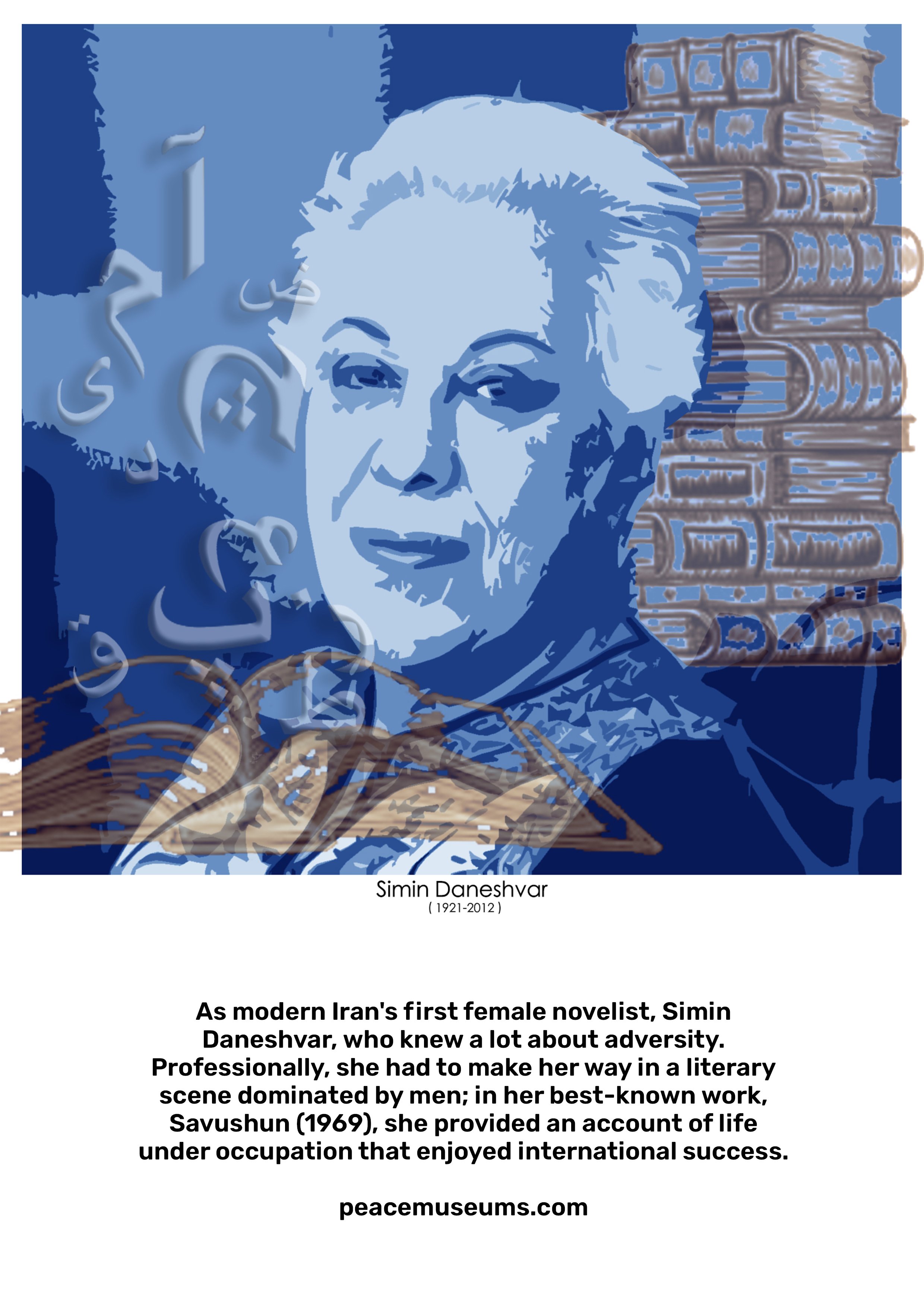Mexican Peace Heroes
chosen by Gonçalves Arnaud Brian and illustrated by Caroline Chojnacki Roze
Mexican Peace Heroes, chosen by Gonçalves Arnaud Brian and illustrated through gentle portrait art by Caroline Chojnacki Roze, is a quiet celebration of hearts devoted to harmony. Each face, paired with thoughtful words above, tells a story of kindness, courage, and hope. Through these peaceful portraits, we discover how simple acts of understanding and compassion can light the way toward a more caring and united Mexico.
Feminist Peace Heroes from India
Created by Riyan Buragohain
From 19th-century reformers like Savitribai Phule to digital peacebuilders like Kirthi Jayakumar, this powerful tribute honours Indian feminists who challenged patriarchy, caste, and injustice to build a more peaceful and equitable society. These inspiring figures, ranging from activists and authors to lawyers and filmmakers, have transformed lives across generations. Discover the untold stories of courage, compassion, and relentless advocacy for peace and women rights.
Flavia Agnes: A legal activist, academician and feminist scholar, Flavia Agnes has spent decades reshaping the legal landscape for Indian women. Born in 1947, her journey from a survivor of domestic violence to a leading women’s rights lawyer exemplifies resilience and transformation. As co-founder of MAJLIS, a legal and cultural resource centre in Maharashtra, she has helped over 50,000 women navigate the justice system with dignity. Agnes has been instrumental in bringing issues of domestic violence, gender inequality, and minority rights into legal and public discourse long before they were part of mainstream conversation. Through public interest litigation and advocacy, she has challenged patriarchal legal norms and defended the rights of women across religious and caste groups. Her deeply personal autobiography, My Story, Our Story of Rebuilding Broken Lives, continues to inspire survivors and activists alike. In 2024, a tree was dedicated in her name in the Garden of the Righteous in Milan, honouring her life-long fight against gender-based violence.
Kirthi Jayakumar: Feminist researcher, peacebuilder, and lawyer from Chennai, Kirthi Jayakumar has pioneered digital activism to advance gender equality and peace. She is the founder of The Gender Security Project, one of the few Women, Peace and Security (WPS) initiatives based in the Global South, dedicated to research and advocacy at the intersection of gender, conflict, and security. A self-taught coder, Kirthi created Saahas, a multilingual mobile and web app that supports survivors of gender-based violence in 196 countries. She formerly founded The Red Elephant Foundation, using storytelling and digital tools to promote gender equality and non violence. A Commonwealth Scholar and Royal Society of Arts fellow, Kirthi represents a new generation of peace activists.
Nandita Das: Acclaimed actor, filmmaker, and activist, Nandita Das has used cinema as a tool for social change. With over 40 films in 10 languages, she is known for taking on powerful and socially relevant roles, including her groundbreaking performance in Fire, one of India’s earliest portrayals of queer relationships on screen. As a filmmaker, her works tackle complex themes, such as the short film Listen to Her, which highlighted the surge in domestic violence in India during the pandemic, and the music video India’s Got Colour, which confronted the deep-rooted issue of colourism. In 2012, she wrote, directed, and acted in Between the Lines, a play that explored the subtle gender inequalities that exist among India’s affluent and educated urban elite. Beyond the screen, Nandita has championed numerous causes, from HIV/AIDS awareness to Dark Is Beautiful, a campaign that challenges beauty standards. She served on the Cannes Film Festival jury twice and was the first Indian inducted into the International Hall of Fame of the International Women’s Forum in Washington, D.C.
Sarojini Naidu: Poet, orator, and freedom fighter, Sarojini Naidu is famously known as the Nightingale of India. Her poetry, including works like In Salutation to Eternal Peace, envisioned peace as a state of harmony, unity, and spiritual connection, not just between individuals but also with nature and the divine. Born in Hyderabad on February 13, 1879, Naidu was not only a gifted writer but also a fearless political leader. A key figure in India’s independence movement and a close associate of Mahatma Gandhi and other national leaders, she endured repeated arrests by British authorities and spent over 21 months in prison. In 1925, she became the first woman to preside over the Indian National Congress. After independence, she was appointed Governor of the United Provinces (now Uttar Pradesh) in 1947, becoming the first woman to hold the office of Governor in the Dominion of India.
Dr. B. R. Ambedkar: Jurist, social reformer, and chief architect of the Indian Constitution, Dr. Babasaheb Ambedkar, born in 1891, was also one of India’s earliest and most radical feminist thinkers. Born into a Dalit family, he understood the deep intersections of caste, class, and gender oppression. He championed the principles of dignity, education, and self-respect for all. Ambedkar’s vision of justice included full gender equality. He urged women to organise independently and lead change. At the All India Depressed Classes Women’s Conference in Nagpur on July 20, 1942, he expressed admiration for the women’s strong turnout and encouraged them to abandon oppressive rituals and customs, instill ambition in their children, and shape the nation's future. As India’s first Law Minister, he drafted the groundbreaking Hindu Code Bill that advocated for equal inheritance rights, divorce, and guardianship, giving daughters and widows the same legal standing as sons.
Irom Sharmila Chanu: A civil rights activist and poet from India’s northeastern state of Manipur, Irom Sharmila Chanu is known as the state’s Iron Lady. In protest against the Armed Forces Special Powers Act (AFSPA), she undertook one of the world’s longest hunger strikes, lasting nearly 16 years, from 2000 to 2016. Her protest began after the killing of 10 civilians by security forces in Malom village, igniting her resolve to demand justice and the repeal of AFSPA, a law granting sweeping powers to the military in “disturbed” areas. She was awarded the Rabindranath Tagore Peace Prize in 2010 in recognition of her unwavering commitment to non violent resistance. Despite being force-fed through a nasal tube and held under arrest for most of her protest, she remained calm, determined, and focused. In August 2016, she ended her fast, declaring her intent to enter politics and pursue justice through electoral democracy.
Manasi Pradhan: A women’s rights activist and author, Manasi Pradhan is the founder of the Honour for Women National Campaign, a nationwide movement aimed at ending violence against women in India. Born in a remote village in Odisha in 1962, she defied deep-rooted gender taboos, walking 15 km each day through rugged terrain to become the first girl in her village to complete school and later, the first woman law graduate in her region. Over the years, she has founded multiple initiatives, including Nirbhaya Vahini, Nirbhaya Samaroh, and OYSS Women, which work to empower women at the grassroots level. Manasi Pradhan’s contributions have received widespread national and international recognition. She was awarded the Rani Lakshmibai Stree Shakti Puraskar by the President of India in 2014 and named one of the world’s most inspiring feminist authors and activists by Bustle and Welker Media. In 2018, she addressed the prestigious Oxford Union at the University of Oxford.
Sampat Pal Devi: Grassroots leader, women’s rights activist, and founder of the Gulabi Gang– a movement of women in pink saris fighting injustice across rural India, Sampat Pal Devi, who was born in 1960 in Bundelkhand, Uttar Pradesh, witnessed gender and caste discrimination from a young age. Denied formal education and forced into child marriage at twelve, she defied expectations by secretly attending school and becoming her class’s top student. In 2006, Devi established the Gulabi Gang, a group originally all women and later joined by men, to take on abusive husbands, corrupt officials, and a system that often fails to protect its most vulnerable. They support survivors of gender violence, run shelters for widows, teach self-defence, and demand action from authorities in cases of rape and social injustice.
Savitribai Phule: Educator, social reformer, and India’s first female teacher, born in 1831 in Naigaon, Maharashtra, Savitribai Phule broke caste and gender barriers by advocating for education as a tool for emancipation. With the support of her husband Jyotirao Phule, she learned to read and write, defying social norms. Together, they founded India’s first school for girls run by Indians at Bhide Wada in Pune, which became a catalyst for educational reform. Between 1848 and 1852, they established 18 such schools and introduced innovative teaching practices, including stipends and parent-teacher meetings. Her work extended beyond education as she co-founded the Satya Shodhak Samaj to promote social equality, encouraged widow remarriage, and opposed dowry and caste discrimination. She set up Balyata Pratibandak Gruha to support pregnant widows and rape victims, and ran adoption and shelter initiatives. Through her organization, Mahila Seva Mandali, she fought against child marriage, female foeticide, and the sati system.
Sudha Murty: Engineer, educator, philanthropist, and storyteller, Sudha Murty has long defied social expectations. Born in 1951 in Shiggaon, Karnataka, she became the first female engineering student at B.V.B. College of Engineering & Technology in 1968. At a time when engineering was seen as unsuitable for women, she studied without basic facilities like a women's restroom and graduated at the top of her class. As a key figure in social development initiatives, Murthy has led the construction of over 16,000 women’s toilets across India, working to restore dignity and hygiene to marginalized communities. For nearly two decades, she has also supported the rescue and rehabilitation of over 3,000 survivors of sex trafficking, offering them education, legal aid, and a path to reclaim their lives. Through her writing, which is rich in Indian mythology and folklore, Murty raises powerful questions about gender norms, child marriage, and the tension between tradition and progress. Her stories speak to the everyday courage of women across India and invite readers to imagine a more compassionate and equitable society.
Eco-activists
By Gonçalves arnaud Brian
Autumn Peltier : She is an environmental and indigenous rights activist who highlights the issues of water access and conservation. Autumn Peltier advocates for access to clean water for Indigenous peoples in Canada and denounces the treatment they receive compared to other people who are never denied water. Her work consists of working with organisations to provide access to water for indigenous people and raising awareness of the issue on social media. Her work with the Dreamcatcher Charitable Foundation has brought water to over 500 homes in indigenous communities.
Chico Mendes : Chico Alves Mendes Filho was a Brazilian rubber tapper and environmentalist who dedicated his life to preserving the Amazon rainforest and defending the human rights of Brazilian peasants and indigenous people. He was secretary of the Rubber Tappers' Union and later founded the National Council of Rubber Tappers with other union members to protect rubber tappers, rural workers and indigenous people from land invasions.
Fatou Jeng : Fatou Jeng is a Gambian youth climate activist and founder of Clean Earth Gambia. The organisation aims to raise awareness on environmental and climate change issues. Through her organisation, she has been instrumental in educating the younger generation about the problem of climate change. They have also managed to plant over 30,000 trees.
Hindou Oumarou Ibrahim : An environmental activist and geographer from the Republic of Chad, Hindou Oumarou Ibrahim campaigns for the rights and protection of the Mbororo people of Chad. She also works for the climate movement, contributing to the 3D mapping of Mbororo territories for better sustainable environmental management and advocating for the inclusion of indigenous knowledge and wisdom in the global climate change movement.
Julia Butterfly Hill : She is an American environmental activist and advocate for tax redirection. She fought for the preservation of trees and protested against a logging company by living at the top of an ancient redwood tree in Northern California to prevent it from being cut down. Her action led to an agreement with the company to preserve the trees in the area.
Leah Thomas : Leah Thomas is an American feminist and environmental activist who uses social media platforms such as Instagram to educate people about the close connection between social justice and environmentalism. She believes that protecting the environment goes hand in hand with protecting people who are victims of social injustice, and that every group of people should have a presence and a voice in the environmental movement.
Liz Chicaje Churay : Peruvian environmentalist and indigenous leader, Liz Chicaje Churay is an environmentalist who fights for the conservation of forests and the rights of indigenous people in the Loreto region of Peru, protecting them from illegal logging and mining. Her activism led to the creation of the Yaguas National Park and the protection of the Yagua people in the area.
Rachel Carson : Rachel Carson was an American marine biologist and environmentalist. She is considered one of the most important figures in the modern environmental movement. She raised awareness of environmental issues and the importance of conservation. Her most important work is Silent Spring, a book on environmental science.
Sunderlal Bahuguna : He was an Indian environmentalist and a leader of the Chipko movement, a peaceful movement to protect forests in India. True to the movement he was a part of, he protected the forests of the Himalayas and fought for their preservation. Bahuguna also led protests against the construction of large dams that could damage the environment, notably the Tehri dam protest.
Vanessa Nakate : A Ugandan climate justice activist raising awareness of the problems some communities face due to climate change and the dangers of fossil fuels. Vanessa Nakate founded the Youth For Future and Rise Up movements to give a voice to African climate activists. She has spoken at many international forums and summits to urge world leaders to take action and contribute to the cause. She also launched the Green School Project to encourage schools in Uganda to move towards a more eco-friendly environment, such as using solar energy, with 30 schools already taking part in the initiative.
Berta Cáceres : Honduran feminist, defender of LGBT and indigenous rights. She founded the Council of Popular and Indigenous Organizations of Honduras to defend the rights of indigenous people in Honduras, and has led many protests and campaigns on behalf of indigenous people to defend their lands against illegal logging and occupation. Berta Cáceres is best known for her protests against the construction of hydroelectric dams on the Rio Gualcarque at the request of the Lenca indigenous people of Honduras.
Elizabeth Wanjiru Wathuti : She is an environmentalist from Kenya and has helped to plant over 30,000 tree seedlings in Kenya through the Green Generation Initiative, of which she is the founder. She encourages the younger generation to take care of the environment. She received the Africa Green Person of the Year Award in 2019.
Hilda Flavia Nakabuye : She is a climate and environmental rights activist who also advocates for a more inclusive climate change movement. Nakabuye is the founder of the Fridays for Future movement in Uganda and encourages everyone, especially women, to join the fight against climate change. Uganda's Fridays for Future is dedicated to mobilising youth to demand swift action on the climate crisis.
Jadav Molai Payeng : Known as the Forest Man of India, Jadav Molai Payeng is not only a forestry worker but also an activist dedicated to preserving India's natural landscape by planting trees. His efforts paid off when he managed to turn a sandbar of the Brahmaputra River into a forest reserve covering around 1,360 acres. It was named 'Molai Forest' in honour of his hard work.
Leah Namugerwa : Leah Namugerwa is a climate activist from Uganda, Africa. Her activism takes the form of tree planting campaigns, marches and petitions to enforce the plastic bag ban in Uganda. She aims to raise awareness of climate change and its impact on the people of Uganda.
Lesein Mutunkei : An environmental activist from Kenya, Lesein Mutunkei is a footballer who uses the power of football to protect nature. For every goal he scores, he plants 11 trees to help with reforestation. His organisation, Trees4goals, has planted more than 5,500 indigenous trees in Kenya and he and his 22 team-mates have planted 700 trees in Nairobi's Karura Forest. He also encourages young people to join the initiative.
Mike H. Pandey : Indian filmmaker born in Nairobi, Kenya, who is committed to the conservation of India's wildlife, which he promotes through his films. Mike H. Pandey has won over 300 awards for his work in sharing knowledge about wildlife and helping to protect and conserve species such as whale sharks, elephants, tigers, vultures and horseshoe crabs.
Sumaira Abdulali : Sumaira Abdulali is an Indian environmental activist from Mumbai whose main activities are fighting against noise pollution and illegal sand mining. She founded the Movement against Intimidation, Threat and Revenge against Activists (MITRA) to protect public interest activists. Her actions have led to changes in sand mining policy at state and national levels, and even brought the issue of illegal sand mining to the attention of the world. As mentioned above, she also works to reduce noise pollution in cities.
Sylvia Earle : She is an American marine biologist who campaigns for the conservation of marine life. Her Mission Blue aims to create protected areas for marine ecosystems called "Hope Spots". By 2022, around 140 Hope Spots will have been created around the world.
Xiye Bastida Patrick: She is a Mexican climate activist from the indigenous Otomi people of Mexico. She is one of the organisers of Fridays for Future New York City and co-founded the Re-Earth initiative to make the climate movement more inclusive and diverse for all. Her activism ranges from climate strikes to speaking at the United Nations about the importance of the climate movement and demanding that world leaders join it.
Indigenous Peace Heroes of Brazil
By Gonçalves arnaud Brian
Raoni Metuktire (or Ropni) : He is an Indigenous Brazilian leader and chief belonging to the Kayapó (or caiapó) ethnic group from the Krajmopyjakare village in north-eastern Mato Grosso. He is an environmentalist known for his fight for the preservation of the Amazon rainforest and indigenous culture. His actions led to the creation of the Rainforest Foundation to protect Indigenous territory and they successfully paved the way for the demarcation of large indigenous lands in the country. Raoni was nominated in 2020 for the Nobel Peace Prize for his lifelong defence of the forest.
Sonia Guajajara : Activist and leader of the Guajajara people, Sonia Guajajara has been one of the most important figures in the indigenous struggle in recent years. A native of Maranhão in Brazil, she has made a career out of defending indigenous rights, particularly in the area of land demarcation and conservation of the Amazon. In 2023, she became Brazil’s first Minister for Indigenous Peoples.
Ailton Krenak : Indigenous leader, environmentalist and writer, belonging to the Krenak people. He founded the Núcleo de Cultura Indígena organisation to promote indigenous culture. Since 1980, he has dedicated himself to the protection of indigenous peoples and the environment. He is very important for his participation in the elaboration of the Brazilian Constitution of 1988 as a representative of Indigenous peoples. During one of the sessions, while speaking from the podium, he painted his face with black jenipappo paint, in keeping with traditional Brazilian indigenous custom, to protest what he saw as a step backwards in the fight for Brazilian Indigenous rights.
Célia Xakriabá : indigenous educator and activist from the Xakriabá of Brazil, campaigning for the rights and status of indigenous women, endangered Indigenous languages and for the demarcation of indigenous land. She has denounced the systemic racism that people like her face in society for being indigenous and talked about the importance of preserving her community’s territory.
Jacir de Souza Macuxi : belonging to the Macuxi people of Brazil, he is one of the main defenders of the recognition of the Raposa Serra do Sol indigenous territory in the state of Roraima. He united all the tuxauas (chiefs) in the region to help community leaders fight against the advancin mining operations on indigenous land. His actions succeeded and led to several indigenous communities joining the initiative which resulted in the creation of the Indigenous Council of Roraima to defend the rights of the indigenous peoples of Roraima.
Hamangaí Pataxó Hã-Hã-Hãe : indigenous woman of mixed heritage, descendant from both the Pataxó Hã-Hã-Hãe people and the Terena people. She is an activist that highlights the importance of preserving nature and aims to motivate young indigenous people like her to continue their duty of protecting it. She has participated in many conferences where she promoted her goal of continuing the work of her ancestors.
Davi Kopenawa : Shaman,eco-activist and spokesman for the indigenous Yanomami community of Brazil. He advocates for the conservation of nature and the environment on a global scale. He brought awareness to the suffering of the Yanomami in Brazil caused by illegal gold miners and fought for the recognition of the areas inhabited by the Yanomami, which were eventually recognized by the Brazilian government. He won many awards, notably the UN Global 500 award in 1989.
Joênia Wapichana ( Wapixana) : Brazil’s first indigenous lawyer, she is a member of the Wapixana tribe of Brazil and the current president of the National Commission for the Defense of the Rights of Indigenous Peoples. She worked on the demarcation of the Raposa do Sol indigenous reserve in Roraima, Brazil, as well as in the legal department of the Indigenous Council of Roraima, defending the rights of indigenous peoples to own their land in the Northern region of Brazil. She fights against the expansion of illegal gold mining in the Amazon. In 2018 she was awarded with the UN Prize in the field of Human Rights.
Daniel Munduruku : Indigenous author and educator from the Munduruku indigenous people. He promotes traditional indigenous stories through the children’s books he writes, and is involved in many organizations that promote the culture and literature of Brazil’s indigenous peoples.
Cristine Takuá : indigenous writer, philosopher, educator and artisan belonging to the Maxacali ethnic group. She is a member of the Guarani Yvyrupa Commission (CGY), an indigenous organisation founded in 2006 that brings together Guarani groups from the south and south-east of Brazil engaged in territorial struggles. She is also the founder of the Forum for the Articulation of Indigenous Teachers of São Paulo and a representative of the Indigenous Education Centre of the São Paulo State Department of Education.
Daiara Tukano : Indigenous activist and artist, descendant of the Tukano people from the Rio Negro in Amazonas, on the border between Brazil, Colombia and Venezuela. She has Master’s degree in Human Rights and she researched the right of memory and truth for indigenous peoples. Her role as an activist goes hand in hand with her profession as an artist as she explores her culture and its history through her art, bringing awareness to it.
Sonia Ará Mirim : Sonia Ará Mirim is a descendant of the Xukuru-Kariri people of the Northeast, but she was adopted by the Guarani of São Paulo and became an indigenous leader of the Guarani Mbya. An environmentalist and defender of indigenous rights, Sonia Ará Mirim formed a group of forest firefighters to fight fires in the Jaraguá region, one of the few areas of Atlantic Forest left in the state of São Paulo. In January 2020, she led the resistance movement against the Tenda construction company, which wanted to build a five-building luxury development on land adjacent to the Jaraguá Indians’ land, where 700 Guarani live.
Peace Heroes by Charlotte Reece
Virginia Woolf was a groundbreaking British author, essayist, and feminist whose innovative writing and sharp intellect profoundly shaped modern literature and feminist thought. Born in London, she grew up in an intellectually vibrant household, surrounded by the works of great writers and thinkers.
Woolf’s literary career flourished in the early 20th century, and she became a central figure in the Bloomsbury Group, a circle of writers, artists, and philosophers who challenged traditional norms and embraced progressive ideas. Her novels, including Mrs. Dalloway (1925), To the Lighthouse (1927), and Orlando (1928), broke with conventional storytelling. Woolf experimented with stream-of-consciousness techniques, capturing the inner lives of her characters in ways that mirrored the complexity of human thought.
Beyond her fiction, Woolf was an influential essayist and critic. Her works A Room of One’s Own (1929) and Three Guineas (1938) remain seminal feminist texts, articulating the systemic barriers that prevent women from achieving creative and intellectual freedom. She famously wrote:
"A woman must have money and a room of her own if she is to write fiction."
Woolf’s life was marked by struggles with mental health, exacerbated by personal losses and societal pressures. Despite these challenges, she left an indelible mark on literature and culture. Tragically, she died by suicide in 1941, leaving behind a legacy that continues to inspire readers and writers.
Virginia Woolf’s work remains a testament to her brilliance, courage, and commitment to exploring the depths of human experience and advocating for gender equality. She is celebrated as one of the most important literary figures of the 20th century.
Roger Waters, born in 1943, is a British musician and one of the founding members of the legendary rock band Pink Floyd. Renowned for his poignant and politically charged lyrics, Waters used his platform to advocate for peace, human rights, and social justice, making him not just an icon in music, but also a powerful figure in activism.
Waters' musical career is marked by his deep exploration of themes such as war, alienation, and the human experience, with albums like The Wall (1979) standing out as a monumental critique of societal structures, mental health, and personal isolation. His anti-war sentiments were particularly visible in The Final Cut (1983), which took on the themes of war and the repercussions of conflict, especially in relation to his experiences in World War II and the Vietnam War. His belief in peace and social justice became central themes of his music and his public persona.
As a passionate advocate for peace, Waters has continuously used his voice to stand against injustice. His activism grew stronger after his time with Pink Floyd, with Waters playing a prominent role in various campaigns and humanitarian efforts. Notably, he has been vocal about human rights, speaking out against oppression, and supporting causes such as the global campaign for nuclear disarmament.
Waters' dedication to peace and his ability to connect the political with the personal through his music resonates with his role as a peace hero. His works have transcended music, making him a symbol of resistance, courage, and unwavering commitment to the betterment of society. Through his music and activism, Roger Waters continues to inspire new generations to engage in critical thinking, challenge oppressive systems, and work toward a more just and peaceful world.
Pat Arrowsmith is a British peace activist and campaigner, best known for her work in promoting disarmament and advocating for peace during times of political tension and war. Born in the UK, she became actively involved in the anti-nuclear and peace movements in the 1960s and has been an outspoken advocate for global disarmament, human rights, and non-violent protest.
Arrowsmith's commitment to peace was shaped by her early experiences with the devastating consequences of war, leading her to challenge both government policies and the systems that perpetuated violence. She was an early member of the Campaign for Nuclear Disarmament (CND), a movement that sought to rid the world of nuclear weapons. She played a key role in organizing peaceful demonstrations and raising public awareness about the dangers posed by nuclear arms.
Arrowsmith is perhaps best known for her involvement in the Greenham Common Women's Peace Camp, a significant and powerful grassroots movement that protested the presence of nuclear weapons at the US military base in Greenham Common, England. Thousands of women gathered at the base in the early 1980s, creating a lasting symbol of female-led peace activism. Arrowsmith’s tireless work during this period, along with other women from the camp, was instrumental in drawing attention to the nuclear threat and advocating for peaceful alternatives.
Over the years, Arrowsmith’s activism expanded to include other issues such as poverty, the environment, and human rights, always rooted in her belief in the power of non-violent resistance. Her peaceful protests, writings, and campaigns have earned her recognition as one of the leading figures in the British peace movement.
Pat Arrowsmith's legacy is a testament to the courage and dedication required to challenge militarism and promote a world built on peace, cooperation, and social justice. Through her activism, she continues to inspire individuals to engage in peaceful protest and work toward a more just and harmonious world.
Jeremy Corbyn is a British politician and activist renowned for his unwavering commitment to social justice, peace, and equality. Born in 1949 in Chippenham, England, Corbyn grew up in a politically conscious family that fostered his early interest in activism and community service.
Corbyn entered politics as a Labour Party Member of Parliament for Islington North in 1983, a position he has held for over four decades. However, it was his leadership of the Labour Party from 2015 to 2020 that propelled him to international recognition. His tenure as leader marked a significant shift in the party’s direction, emphasising grassroots movements and socialist principles. He advocated for policies such as free education, the renationalisation of public services, and an ambitious Green New Deal to combat climate change.
A lifelong peace campaigner, Corbyn has been a vocal critic of war, nuclear weapons, and military interventions. He served as the chair of the Stop the War Coalition, opposing conflicts such as the Iraq War and advocating for diplomacy over violence. His principles often made him a polarising figure, attracting both fervent support and staunch opposition.
Corbyn’s leadership style championed the voices of ordinary people, revitalising political engagement among young voters. Under his guidance, Labour gained over half a million members, becoming Europe’s largest political party by membership. Despite facing criticism from within his party and the media, Corbyn's impact on British politics remains profound, highlighting issues of inequality, climate justice, and workers' rights.
Though no longer Labour leader, Jeremy Corbyn continues to advocate for change as an independent MP and activist. His enduring message is one of hope and solidarity, urging people to build a society rooted in compassion, fairness, and peace.
Eleanor Rathbone was a pioneering British social reformer, suffragist, and politician who dedicated her life to championing the rights of women, children, and marginalised communities. Born into a progressive and philanthropic family in Liverpool, she was deeply influenced by her father, William Rathbone VI, a Liberal MP and advocate for social reform.
Rathbone’s career began in earnest when she joined the suffrage movement, working tirelessly to secure voting rights for women. She believed equality extended beyond the ballot box, advocating for economic and social reforms that would empower women in all aspects of life.
As an independent Member of Parliament (1929–1946), Rathbone became a powerful voice in British politics. She is perhaps best known for her groundbreaking work on family allowances, introducing the concept of direct state payments to mothers to alleviate child poverty. This revolutionary idea laid the foundation for the modern welfare state.
Rathbone was also a fierce advocate for refugees, using her platform to campaign against the persecution of Jews in Nazi Germany. She worked tirelessly to bring awareness to the plight of refugees fleeing fascist regimes, lobbying the British government to take action.
Her legacy is one of determination and compassion, embodying the belief that society has a responsibility to protect its most vulnerable members. Eleanor Rathbone’s tireless efforts paved the way for social policies that continue to support families and uphold human rights. She remains an inspiring figure in the fight for justice and equality.
Simone Weil was a French philosopher, mystic, and activist whose profound intellect and unyielding empathy made her one of the most distinctive thinkers of the 20th century. Born into a secular Jewish family in Paris, Weil displayed remarkable academic brilliance from an early age. She studied philosophy at the École Normale Supérieure, where she emerged as one of the most promising intellectuals of her generation.
Weil’s philosophy was deeply rooted in her commitment to justice and solidarity with the oppressed. She briefly worked as a factory laborer to understand the struggles of the working class firsthand, an experience that profoundly shaped her views on labor and human dignity. A lifelong pacifist, Weil also participated in political activism, supporting workers’ movements and volunteering in the Spanish Civil War, though her pacifism clashed with the realities of violence.
In her later years, Weil’s thought became increasingly spiritual. She explored Christianity, Hinduism, and other traditions, seeking universal truths about human suffering and divine grace. Her writings, including Gravity and Grace and The Need for Roots, reveal a profound concern with the tension between the material and the spiritual, advocating for a society rooted in compassion, humility, and a recognition of the divine in all things.
Weil’s life was marked by asceticism and self-sacrifice, often pushing herself to the brink of physical and emotional exhaustion in solidarity with those who suffered. She died in 1943 at the age of 34, likely from malnutrition and tuberculosis, leaving behind a body of work that continues to inspire and challenge readers.
Simone Weil’s legacy is one of radical empathy and intellectual rigor. Her life and writings invite us to confront the deepest questions about justice, suffering, and the nature of human existence.
Tano Jōdai was a pioneering Japanese scholar and peace activist whose contributions to education and international peace continue to be celebrated. After studying abroad at Wells College in the United States, where she earned her master's degree in 1917, Jōdai returned to Japan and became a professor at Japan Women's University (JWU). She was the first person in Japan to teach courses on American literature and history, introducing new fields of study to the country.
Jōdai's commitment to peace was influenced by her mentor, Inazo Nitobe, a prominent Japanese educator and diplomat. Following Nitobe's guidance, Jōdai founded the Japanese Women's Peace Association, which later became the Japanese chapter of the Women's International League for Peace and Freedom. In 1924, at Nitobe's recommendation, she studied at the University of Michigan and Newnham College, Cambridge, and then spent time at Nitobe's home in Geneva until 1927. These international experiences deepened her engagement with global peace efforts.
After World War II, Jōdai returned to Japan Women's University, where she played a key role in shaping the institution’s future. In 1955, she was one of the founding members of the Committee of Seven to Appeal for World Peace. From 1956 to March 1965, she served as the president of the university. During her tenure, she made the entire library collection accessible as open stacks and initiated the establishment of a "friends of the library" group to foster community involvement in the university's academic resources.
Her legacy is marked by her incredible work in both education and peace activism, advocating for women’s rights, global cooperation, and cultural exchange through both her academic and peace-building efforts.
Katharine Hamnett is a renowned British fashion designer and activist, celebrated for her pioneering work in sustainable fashion and her iconic slogan T-shirts. Born on August 16, 1947, in Gravesend, Kent, England, she studied fashion at the Central Saint Martins College of Art and Design. In the early 1980s, Hamnett gained international acclaim for her bold, oversized T-shirts emblazoned with large, block-letter slogans addressing political and social issues. One of her most famous moments occurred in 1984 when she met then-Prime Minister Margaret Thatcher wearing a T-shirt that read "58% DON'T WANT PERSHING," protesting the deployment of U.S. missiles in the UK.
A trailblazer in ethical fashion, Hamnett became aware of the environmental and human rights issues in the textile industry in the late 1980s. In response, she began advocating for sustainable practices, including the use of organic cotton and fair labor conditions. In 2005, she relaunched her brand with a focus on ethical production, setting a standard for the industry.
Throughout her career, Hamnett has used fashion as a platform for activism. In 2003, during a London fashion show, her models wore T-shirts with the slogan "STOP WAR, BLAIR OUT," opposing the Iraq War. In 2013, she designed T-shirts for the Campaign for Nuclear Disarmament with messages like "EDUCATION NOT TRIDENT" and "NHS NOT TRIDENT." In February 2024, she publicly relinquished her Commander of the Order of the British Empire (CBE) distinction in protest against the UK government's support for the war in Gaza, wearing a T-shirt reading "DISGUSTED TO BE BRITISH."
Katharine Hamnett's fusion of fashion and activism has left an indelible mark on the industry, demonstrating the power of design as a medium for social change.
Emmeline Pankhurst was a trailblasing activist whose courage and determination helped ignite a revolution for women's rights. Born in 1858 in Manchester, England, she grew up in a politically engaged family that valued social justice. These early influences shaped her lifelong commitment to fighting for equality.
Emmeline is best known as the fearless leader of the suffragette movement, a campaign that sought the right to vote for women in the United Kingdom. In 1903, she founded the Women’s Social and Political Union (WSPU), a militant organization that demanded immediate action for women's suffrage. Their slogan, “Deeds, not words,” reflected their bold tactics, including protests, hunger strikes, and even acts of civil disobedience.
While often controversial, Pankhurst’s leadership and unwavering spirit inspired countless women to join the cause. She faced imprisonment multiple times, enduring harsh conditions and force-feeding during hunger strikes. Yet, her resolve never wavered.
The outbreak of World War I marked a turning point for Emmeline. She temporarily paused the suffrage campaign to support the war effort, believing this demonstrated women’s capability and loyalty to the nation. Her advocacy paid off—women over 30 gained the right to vote in 1918, and by 1928, full suffrage was achieved, just weeks after her passing. Time named her as one of the 100 Most Important People of the 20th Century, stating that "she shaped an idea of objects for our time" and "shook society into a new pattern from which there could be no going back”.
Emmeline Pankhurst remains a symbol of courage, resilience, and the power of collective action. Her legacy reminds us that the fight for equality is a testament to the strength of those who refuse to accept injustice.
Bisan Owda is a Palestinian journalist, activist, and filmmaker whose compelling storytelling has brought global attention to the realities of life in Gaza. Born in Beit Hanoun, Gaza Strip, she has dedicated her career to shedding light on social issues, cultural heritage, and the human impact of conflict.
Owda produces and hosts "Hakawatia," a show aired on Roya TV that delves into Palestinian history and culture. Her commitment to social change extends beyond journalism; she actively works with organisations such as UN Women and the European Union, focusing on gender equality and climate change.
During the Israel–Hamas war, Owda's on-the-ground reporting provided an unfiltered view of the hardships faced by Gazan civilians. Her videos, often starting with "I'm still alive," resonated worldwide, amassing millions of followers and humanising the conflict for a global audience.
Her courageous journalism has earned her significant accolades, including a 2024 Peabody Award, an Edward R. Murrow Award, and a News and Documentary Emmy Award for her series "It's Bisan from Gaza and I'm Still Alive." These honours underscore her vital role in bringing the stories of Gaza to the forefront of international consciousness.
Bisan Owda's unwavering dedication to truth and justice continues to inspire and mobilise audiences around the world, exemplifying the profound impact of authentic storytelling in the pursuit of peace.
Croatian Peace Heroes
Colombian Peace Heroes
Iranian Peace Heroes
Indigenous Peace Heroes
Xiuhtezcatl Martinez
Xiuhtezcatl Martinez is a young American environmental activist and hip-hop artist. Martinez was born in Colorado but spent a large part of his life raised within the community of the indigenous Mexica. He was youth director of Earth Guardians until 2019 and has spoken to large crowds, including the United Nations, about the effects of fossil fuels on indigenous communities. Through his family, Martinez inherited the Mexica traditional knowledge of seeing an individual as part of a greater whole and of emphasizing a connection between all aspects of the natural world. It is through the inspiration of his indigenous upbringing that he become an environmental activist as he strongly believes the abuse of nature is "the tearing apart of a fragile and revered system.”
Hindou Oumarou Ibrahim
Hindou Oumarou Ibrahim is an environmental activist and geographer from Chad. She advocates for the greater inclusion of indigenous people and their knowledge and traditions in the global movement to fight the effects of climate change. She is the President of the Association for Indigenous Women and Peoples of Chad (AFPAT), in addition to that she is also co-chair of the International Indigenous Peoples Forum on Climate Change (IIPFCC) and a member of the Executive committee of the Indigenous Peoples of Africa Coordinating Committee (IPACC). Ibrahim comes from the nomadic Mbororo community in Chad. Her parents settling in the capital, N’Djamena, allowed her to go to school which caused a lot of conflict between her mother, her father’s family, and her mother ́s own family.
Amelia Telford
Amelia Telford is a young Aboriginal and South Sea Islander woman from Bundjalung country, who is currently the National Director of the Seed Indigenous Youth Climate Network. In 2012 she developed a program through the Australian Youth Climate Coalition, which supports Aboriginal and Torres Strait Islander young people and helps them to build sustainable projects in their area in order to protect their land and their communities from the impact of Climate Change. Also, Amelia was awarded National NAIDOC Youth of the Year 2014, Bob Brown's Young Environmentalist for the Year 2015 and Australian Geographic Young Conservationist of the Year 2015 for her commitment to building a more sustainable future for all young people.
Klemetti Näkkäläjärvi
Klemetti Näkkäläjärvi is a Finnish researcher and a member of a reindeer Saami family. He is greatly focused on Saami culture, language, environment and biodiversity. Näkkäläjärvi also worked as Sami parliament’s president in Finland which is the highest political organ of the Saami people in the country. He influenced a concept of prohibition of regression that serves to prevent the realisation of projects which would considerably impair the potential of the Saami people to exercise their indigenous peoples' rights. Näkkäläjärvi also assisted in implementation of Akwé: Kon guidelines in Finland - ‘’guidelines for the conduct of cultural, environmental and social impact assessments in developments proposed to take place on, or which are likely to impact on, sacred sites and on lands and waters traditionally occupied or used by indigenous and local communities.’’
Rigas Zafeiriou
Rigas Zafeiriou is a Greek cross-disciplinary researcher, consultant and manager on organic and sustainable agricultural systems, food networks and sustainable rural development. As a Project Manager for the Mediterranean Institute for Nature and Anthropos (MedINA), he developed and successfully implemented an innovative monitoring and certification system for high-quality, added-value olive oil production, which conserves biodiversity, maintains traditional agricultural landscapes and supports farmers' livelihoods. Moreover, among his many achievements in the field of agrobiodiversity conservation, he is part of the Integrated Nature Culture Approach (INCREAte) which promotes the interconnection of culture and nature by focusing on and designing more efficient conservation projects while also addressing human wellbeing.
Nemonte Nenquimo
Nemonte Nenquimo is an Indigenous activist and member of the Waorani nation from the Ecuadorian Amazon. As an avid environmental and indigenous activist, she was the Plaintiff in a lawsuit against the Ecuadorian government, which culminated in a 2019 ruling that protects half a million acres of Waorani ancestral land in the Amazon rainforest from oil drilling. In 2015, Nenquimo co-founded Ceibo Alliance, an Indigenous-led non-profit to protect Indigenous lands from resource extraction. She was elected the first female president of the Waorani organization of Pastaza province (CONCONAWEP) in 2018 and in recognition of her work, in 2020 the United Nations Environment Programme gave her the "Champions of the Earth" award in the category Inspiration and Action.
Jennifer Corpuz
Jennifer Corpuz is a lawyer from the Kankana-ey Igorot People of Mountain Province in the Philippines. She is the Global Policy and Advocacy Lead for Nia Tero, a US-based foundation that works alongside Indigenous Peoples to secure Indigenous guardianship and rights to traditional environmental knowledge. Corpuz is passionate about developing capacities of Indigenous leaders and was involved as negotiator and expert for the International Indigenous Forum on Biodiversity (IIFB), representing indigenous peoples, at the negotiations leading to the adoption of the Nagoya Protocol on Access and Benefit-Sharing under the Convention on Biological Diversity (CBD). Through her legal advocacy, Corpuz has managed to protect the biodiversity of the land of indigenous communities around the world.

